






















































































The latest round of energy price increases has led many in the trade to believe that their business will become increasingly unsustainable as we move into 2023 especially when allied to soaring commodity costs and wage demands. We talk to some publicans about the perfect storm for the licensed trade.
Licenses down 1.6%; Justice Minister gets Cabinet approval for licensing reform
Pub turnover in food and non-alcohol up 178% in ‘22




Staff & wages 2 biggest licensed trade challenges after energy 9; Jameson sales up 20% here 10; Minister Catherine Martin announces support package for NTE 11; Supply chain issues negatively impact production for 90% of Irish Whiskey producers 12.
Clancy pubs need profitability The VFI’s new Chief Executive talks to Pat Nolan about the current challenges facing pubs outside Dublin.
44 Campaign Trail
How to save your business from soaring electricity costs; Lambay Whiskey is Unlocking The Untold 45.
46
Closing Time Biophilia in the pub.
18 LVA Conference 2022
After a three-year pandemic-induced absence this year’s LVA Conference took place at the Westbury Hotel in Dublin. We summarise it here.

24

Ampersand dominates NOffLA Wine Awards; IWA calls for new all-island Food and Drinks Tourism Strategy 17.
Whatever the reason, soft drinks seekers will look for a wider, healthier and more adult soft drinks offering this Christmas. We review the soft drinks market in our Industry Report.
40
At this time of year pubs would normally be at their busiest running into to the Festive Season. But what’s in store this year? All we can be sure of is that there will be plenty of Christmas product out there to tempt the consumer and that the unseasonal staging of the World Cup can only operate to the further advantage of both the on- & off-trades.
Particularly at this time of year No alcohol/Low alcohol drinks make their presence felt in a variety of ways so publicans should consider offering a reasonably wide selection of NoLo products for good reason. Our Industry Report looks at what’s out there in a considerably enhanced market.
AS SUPPLIER price rises continue to make their presence felt following their own input cost increases, it seems inevitable that the on-trade is going to have to follow suit and put up prices across the counter.
As VFI Chief Executive Paul Clancy tells us in this month’s 1&1 interview, “Pubs need profitability”.

While the government’s assistance in this matter is welcome, it only covers 40% of the licensed trade’s increase in energy costs. Finance must therefore be found to fund the other 60%.
“Annual income twenty pounds, annual expenditure nineteen nineteen six, result happiness,” counselled Ole Mr Micawber in Charles Dickens’ David Copperfield, “Annual Income twenty pounds, annual expenditure twenty pounds nought and six, result misery.” He wasn’t wrong.
The only solution is a price increase at retail level. Another gentleman with an eye to balancing the books is publican Alan Clancy who watches costs on an hourly basis. But he also knows that, “We, as a nation, enjoy going out, it’s in our DNA,” as he told this year’s LVA Conference.
 Pat Nolan Editor patnolan@mediateam.ie Twitter: @drinksind_ie
Pat Nolan Editor patnolan@mediateam.ie Twitter: @drinksind_ie
In this issue we cover that LVA Conference in full and speak to publicans about the problems they’re experiencing with the massive hike in energy costs.
But pubs will have to be innovative to survive a more demanding public and become more creative in their appeal while offering true value for money.
Some pubs in the UK have already made lemonade from the lemons they were dealt, opting to experiment with ‘blackout nights’ as a novel way of attracting in customers through offering something different - candlelit evenings for customers (insurance implications notwithstanding) to the tune of acoustic sessions onstage and hand-written receipts.
One thing’s for sure - we’re not nearing the end of these price rises so we’d be as well - both public and publicans - to start working on the other end of received price increases - costs.
As is revealed in our main story, some publicans started to take the necessary steps to reduce their energy demand quite some time ago. What have you been doing thus far - and what will you be doing over the bleak
Some pubs in the UK have already made lemonade from the lemons they were dealt, opting to experiment with ‘blackout nights’ as a novel way of attracting in customers
The number of Seven-Day On-Licenses issued by the Revenue Commissioners last September fell 1.6% to 6,680 from 6,788 in September 2021.
Cork suffered the largest drop in such licences issued, dropping to 856 last September from 873 the previous September.
However Dublin City & County saw
an increase in the number of licenses issued, rising seven from 752 to 759. Kildare, too, saw licenses issued rising by four to 169.
Other counties such as Laois, Offaly and Wicklow also saw a slight rise in licenses issued last September.
Over this period the number of offlicences issued rose from 3,453 to 3,497.
The Revenue Commissioners recently announced an extension to the Debt Warehousing Scheme in light of the current challenging economic situation for businesses.

Under the scheme, businesses with warehoused debt could enter into an arrangement with Revenue to deal with that debt by the end of the year (or by the 1st of May 2023 for those subject to the extended deadline).
But given the current economic uncertainty, Revenue extended the timeline to the 1st of May 2024. This means that businesses will not now have to face the challenge of either clearing the debt in the warehouse or entering into a phased payment arrangement to clear the debt until the 1st of May 2024.
Importantly too businesses will still be able to avail of the reduced 3% interest rate from the 1st of January next year as opposed to the general interest rate of 10% when they come to pay that debt.
“Revenue appreciates the very significant challenges that businesses are currently experiencing in meeting their tax obligations arising from the impacts of the energy costs crisis and the financial pressures
Businesses will still be able to avail of the reduced 3% interest rate from the 1st of January next year as opposed to the general interest rate of 10%, when they come to pay that debt.
these have placed on businesses as they continue their recovery from the pandemic,” said CollectorGeneral Joe Howley in commenting on the extension, “This extended deadline in terms of debt remaining in the warehouse and the ongoing availability of the reduced rate of interest of 3% will provide businesses with greater certainty in the current economic climate and give them additional time before they have to start addressing the warehoused tax debt.”
In early December Revenue will write to all businesses with debt in
Dublin City & County saw an increase in the number of licenses issued, rising seven from 752 to 759.
The number of Special Restaurant Licences issued also rose from 514 to 526 and the number of wholesalers licenses rose 4% to 591 from 567.
the warehouse, setting out their statement of debt and advising them of the extension.
The Debt Warehousing Scheme was introduced to provide a vital liquidity support to businesses suffering a downturn due to the Covid-19 pandemic.
Revenue statistics show that the bulk of the €2.58 billion warehoused debt – €2.2 billion – is warehoused by 7,500 taxpayers and a very large cohort of taxpayers (almost 50,000) have debts of less than €5,000 warehoused.
“The Debt Warehousing Scheme has provided a valuable support for businesses and at its height over €3.1bn in debt was warehoused,” concluded Joe Howley, “We’re now at under €2.6bn. There are currently just over 27,000 taxpayers with warehoused debts in excess of €5,000 and these include more than 19,000 employers who employ over 315,000 employees.”
Updated Debt Warehousing Scheme statistics are available on the Revenue website.

n Pre-tax profits at Howth Railway Refreshment Rooms, parent company to The Bloody Stream pub at
Railway Station, totalled €353,491 in the year to the 30th of September 2021 following €192,449 losses the previous year. This was despite turnover being down 13% to €4.6 million in the year from €5.3 million in 2020 while Operating Profits were €1 million, up from €98,655 the year
responsible for €1.4 million of the total turnover figure (down from €2.5 million the previous year)
food sales were responsible for €1.9 million (down from €2.6 million the previous year). The number of staff
from 87 to 54 during the latest financial year. This total comprises 43 bar staff (down from 75) and 11 admin staff (down from 12). Thus staff costs fell 9% from €1.5 million to €1.3 million
Howth Railway Refreshment Rooms’ Directors are Michael Wright, Allen Harrington, Ronan Galligan and Michael Gilbert Wright. The company’s ultimate parent undertaking is Treasure Trail Holdings, 100% owned by Michael Wright.
The Minister for Justice Helen McEntee has received Cabinet approval for her draft Bill to reform Ireland’s antiquated licensing system.
The present system is based on a patchwork of 100 laws - some over 200 years old and two-thirds of which pre-date the foundation of the State 100 years ago.
The Minister believes the laws are in significant need of reform and has published the General Scheme of the Sale of Alcohol Bill to outline how she intends to implement these reforms.
“This will lead to one modern piece of legislation to regulate the sale of alcohol,” she said, “It will aim to support the development of night-time culture and the nighttime economy.
“It will also aim to support the industry, protect and back our pubs. And it will help people to open a pub where some may have shut, start a venue, a club night or an exhibition space, creating jobs and enriching our culture as they do so.
“It should not be easy to obtain and keep a licence. In comparison to many other countries, we have a restrictive licensing system. Under my proposals, that will remain the case,” she stated.
Significantly, nightclubs will now be able to remain open until 6am.
The LVA has been pressing for these reforms for years and believes they were essential to bring Irish alcohol licensing in line with European norms.
“These reforms have been badly needed and much anticipated across the industry,” said LVA Chief Executive Donall O’Keeffe, “Once the revised measures come into effect we will finally have licensing laws fit for the 21st Century and for a modern, tourism-focused economy.
relatively early closing times have seemed out-of-step with both foreign and domestic expectations. Thankfully this is now set to change.
“It will also be positive for our cities and large towns, especially Dublin, creating an extended period for socialisers to return home instead of the current concentrated going home time where everyone is trying to source transport all at the same time.
“We are also glad to see the level playing field for pub licences remains under these reforms and that all venues operating must have the approval of the courts and maintain all the other vital regulatory standards.”
The Bill has the potential to radically alter how the pub trade operates in this country and a proper analysis of its content is required before the Vintners Federation of Ireland would comment further.
Minister Helen McEntee believes the alcohol laws are in significant need of reform and has now published the General Scheme of the Sale of Alcohol Bill to outline how she intends to implement these reforms.
Among the changes proposed in the new Bill are that pubs will be able to serve alcohol until 12.30am every weeknight and that nightclubs will be able to stay open until 6am with Last Orders at 5am.
Under the new proposals late bars will be able to serve to 2.30am, requiring a new Late Bar Permit in order to do so.
The Licensed Vintners Association stated that the reforms of the licensing laws outlined would make them “fit for the 21st Century” following the announcement.
Under the Sale of Alcohol Bill, opening hours for pubs will be standardised across the week, with pubs being allowed to open from 10.30am to 12.30am seven days a week.
Late bars will be allowed to trade to 2.30am all week too.
“In particular, we welcome the Government’s introduction of standardised trading hours for traditional bars and it has also heeded our call to abolish the Special Exemption Order system and provide for annual late bar and nightclub permits. This is a critical step in improving the vibrancy of the LateNight Economy.

“The LVA has long emphasised to Government and the relevant tourism agencies how out of sync the existing closing times have been with public expectations and behaviours. The simple fact is that there is a demand out there for late night socialising and for nightclubs to operate for longer hours. This is what happens in other cities across Europe and what’s expected from modern nightlife.
“Despite Irish pubs and hospitality being internationally renowned the
“However, from initial soundings, it’s fair to state there’s huge concern within the trade about elements of the Bill,” the VFI told Drinks Industry Ireland, “We’ll engage with Government at the earliest opportunity, once our analysis of the Bill is complete.”
It will also consult with its membership about the next steps.
Tánaiste and Minister for Enterprise, Trade and Employment Leo Varadkar backed the reforms.
“I believe the reforms that Minister McEntee is proposing will be good for hospitality businesses, boost the wider experience economy and generate employment,” he said, “It will also give people and performers more autonomy about how, when and where they socialise. Ireland’s licensing laws are out-of-date.
“Rural pubs are closing, as have many nightclubs in urban areas, while the number of off-licences is increasing. It is not all about alcohol and should not be but is part of the picture. It’s about cutting red tape and streamlining regulation. These reforms should be seen in the wider context of the government’s
efforts to improve the cultural and entertainment offering in our towns, cities and rural areas.”
To provide a greater opportunity for community voices to be heard, as well as to streamline the current system, responsibility for licensing will move from the Circuit Court to the District Court.
The system will be streamlined by significantly reducing the number of licenses available and online renewal will be possible where there are no objections.
Overall, this will help to reduce the costs involved whilst maintaining an accessible and transparent system in which the HSE, communities, local authorities and Gardaí can raise any necessary concerns around public safety and public health.
Minister Helen McEntee said that the pub has a central role in Irish cultural life.
“The local pub is an institution where we so often come together” she said, “to chat over a drink or food, to host community events, to celebrate and to mourn.
“I believe it is an institution worth protecting and that we should support our publicans – so many of whom have built-up local businesses over decades through generations of the same family.
“In moving the licensing process to the District Court, we’re reducing the cost of making applications and fees for publicans.”
The Minister also announced that she’s making permanent the changes introduced during the pandemic to facilitate outdoor service with the Seven Day On-Licence remaining the foundation of the trade generally.
“Our late-night venues and nightclubs are at the heart of night-time culture,” continued the Minister, “Nightclubs are an integral part of the life of a city. We do not just experience music on the dancefloor. Clubbing is culture which drives creativity and shapes attitudes.
“Unfortunately, we’ve seen the numbers of nightclubs in Ireland reduce significantly in recent years. Some estimates have suggested that we only have 80 nightclubs, down from over 500 20 years ago to 300 in 2009 and only 80 today.”
Off-licence opening hours will be standardised across the week and off-licences will have the option of opening from 10.30am to 10pm seven days a week - a change from the current position where these hours apply six days a week, with Sunday sales only permitted from 12.30pm.
After a transition period of three years following the enactment of the Bill, the Justice Minister proposes to remove the extinguishment requirement whereby anyone seeking to open a new premises or an offlicence must first purchase a licence from an existing licence-holder in order to do so.
The General Scheme proposes an amendment to the so-called ‘extinguishment’ provision which sometimes proves an impediment to opening a new pub in towns and villages where some premises have shut, particularly in rural areas.
Often, these licences are sold in closed transactions to a large supermarket chain to be used for the purpose of an in-store off-licence in an urban area. And the cost of a licence can be prohibitive for someone seeking to open a new pub in a rural town which may need it.
The ‘extinguishment’ requirement will remain in place for off-licences however and will only be applicable to licences already in existence on the enactment of this Bill. No new licences granted under this Bill could be sold for extinguishment purposes.
“I do not believe we need a dramatic increase in the number of new pubs,” said the Minister, “But, in circumstances where a town has lost its pub we should acknowledge that the community has lost one of its focal points. The current system makes it difficult for anyone who wants to open a new pub in towns and villages where a pub has closed its doors.
“To help develop a vibrant nighttime economy and culture, support our pub sector and especially help our rural towns and villages, the ‘extinguishment’ requirement for pubs should be wound down.
“However, I believe there is a strong public health rationale for maintaining it for off-licenses.
“Publicans and those who operate venues are required to run an orderly
business - and alcohol is served in a controlled environment.
“Alcohol is consumed at home in an uncontrolled environment and removing the extinguishment requirement for off-licenses would not support the development of nighttime culture and the economy.
“But reforms to provisions such as these, over a century old, require a period to allow people readjust.
“That’s why I’m proposing a threeyear transition period following the enactment of this Bill - during this period, the extinguishment provision will still apply.”
To further support night-time culture the Minister proposes to create a new ‘Cultural Amenity Licence’ for galleries, theatres, museums and other cultural venues.
This would apply to small cultural venues in towns and villages and not just larger national venues in our cities. This will be available strictly for venues where the sale of alcohol is not the main activity on the premises and is only for the convenience of people attending the venue for another reason such as an exhibition and it will only be allowed for a set period of time – between one hour before and one hour after a performance takes place.
These licences will also require court approval and will have to meet the same requirements as a fullylicensed premises.
“I want to ensure that smaller cultural institutions and galleries can help breathe life back into our towns and that is why my proposals allow smaller venues apply for what will be called a ‘Cultural Amenity Licence’.”
It is the Minister’s intention to consult further following publication of the General Scheme of the Bill, including pre-legislative scrutiny at the Joint Oireachtas Committee on Justice.
The Minister for Tourism, Culture, Arts, Gaeltacht, Sport and Media Catherine Martin commented, “The new Bill will allow us to take back our nights and represents a crucial milestone for all those working in the Night-Time Economy and for all those who have long campaigned for a modernisation of our licensing laws”.

Since the reopening of pubs around the country, the shortage of staff coupled with the steadily rising demand for pay increases for those staff remaining in hospitality have been the two biggest concerns throughout the licensed trade away from soaring energy costs.

“Energy only really came to the attention of the trade in the Summer,” commented the Licensed Vintners Association’s Chief Executive Donall O’Keeffe, “Last January and February energy was not such a concern. But strong wage inflation since reopening has been a growing concern.
“Thankfully the economy is in full employment and wages are reflecting the demand for staff,” he told Drinks Industry Ireland, “The part-time staff situation has improved but managers, chefs and senior bartenders are very difficult to source and very scarce. It’s going to be a problem in the medium term as there are just not enough of them in the country!
“We’re seeing businesses now
investing in staff training because we had such a high turnover of staff through Covid.”
Training-up staff is certainly one of the answers, he agreed, stating that, “It’s worth investing in people who have an interest and aptitude for a long-term career in the licensed trade.”
VFI Chief Executive Paul Clancy said that, “Staffing will continue to be a major issue for our members. While energy costs have understandably grabbed all the headlines over the
Net revenue at Bulmers Ireland was up 30.5% to €150.7 million in the six months to the 31st of August from €115.5m in H1 last year, driven by the re-opening of the on-trade according to Bulmers Ireland’s parent company C&C Group’s unaudited results for the six months ending on the 31st of August.
Operating Profit was up 129% to €19 million compared to €8.3m in the previous H1 while the introduction of Minimum Unit Pricing helped in improving margins year-on-year despite the inflationary cost pressures being faced by the business.
C&C is the Number One drinks distributor to the UK and Ireland hospitality sectors, operating through the Matthew Clark, Bibendum, Tennent’s and Bulmers Ireland brands.
Volumes at the Irish subsidiary
past months, finding, training and retaining staff will remain a big challenge.
“The VFI launched the Bar Manager Degree Apprenticeship with Griffith College in an attempt to create a defined career pathway for young bar staff and thankfully a huge number of people have signed up.
“While the course is a positive development it will take a concerted effort from all stakeholders to create a perception among job seekers that hospitality is a viable career.
This is all against the backdrop of increasing business costs and a changing hospitality landscape. With numerous venues scaling back their operations over the Winter period and an increasing requirement for seasonal and parttime workers the staffing issue won’t get any easier.
“I would argue that hospitality is under such pressure that supports for employers similar to what was on offer during Covid must be looked at by Government.”
of the C&C Group were up 8.0%, of which Bulmers volumes showed growth of 10.9%.
e-commerce has also seen considerable uptake from customers here.
“We’re pleased to report that the revenue being captured online through our e-commerce platform was 71% of total revenue in August 2022 compared with 66% in February 2022,” states the company, “We continue to see higher order values online compared with traditional contact centre orders, with orders on average 15% higher.
“In the on-trade, the latest Bulmers MAT cider volume share at 63.8% reflects growth in Bulmers’ market share ahead of last year (up 0.9pp), however that also reflects significant growth vs pre Covid-19 levels (up
2.7pp). Bulmers continues to enjoy its position as the largest and most popular cider brand in Ireland.”
The company also pointed out that, “C&C took on the distribution of Budweiser in Summer 2020 and at the time the brand was in MAT lager volume share decline in the off-trade. As of August 2022, we are pleased to report that this has largely stabilised with Budweiser MAT off-trade volume share at 10.1% compared with 9.9% in August 2021.”
Pre-tax profits the C&C Group rose to €47 million, up from €7.1 million in H1 last year.
At €903 million overall revenue was up 37% on the €657m figure for H1 the previous year.
This led to Group Operating Profits of €55 million, up from €19 million.
senior
8 Bulmers volumes up 11%

Minister Catherine Martin has announced a support package for the Night-Time economy to include nine new towns and cities in the new Night-Time Advisor Pilot initiative.
A commitment has also been given to progress the provision of soundproofing grants for venues to help prepare for late opening.
Speaking at the announcement of the publication of the General Scheme of the Sale of Alcohol Bill 2022 at the Royal Hibernian Academy the Minister stated, “Modernisation of our outdated licensing laws was one of the key recommendations of the Night-Time Economy Taskforce which I established back in 2020. The publication of the General Scheme of the Sale of Alcohol Bill agreed by Government today shows this Government’s commitment to supporting a more diverse and vibrant night-time economy.
“Our outdated licensing laws were consistently raised as one of the key obstacles to change, innovation and creativity by those working in the Night-Time Economy.
“I hope that everyone can get behind these changes which will see a more streamlined, efficient and transparent system to licensing, more in step with a modern and diverse society and will hopefully open-up more opportunities in the cultural sector”.
The Minister also took the opportunity to announce an additional package of supports which can help businesses and communities adjust to any potential changes to licensing laws as well as contribute to a more multi-layered NTE.
In this context nine new pilot cities and towns have been selected by an independent review panel, led by the City and County Management Association and supported by her Department.
Farrelly, explained that, “The role of the Night-Time Economy Advisors in the nine pilot towns and cities will be central to the establishment of a thriving night-life for our communities. They are key to delivering co-ordination at local level to help support, drive and sustain a more vibrant and diverse night-time economy. The learnings from the nine pilots will then inform the approach to be taken in rolling out plans for the Night-Time Economy across our cities and towns more generally”.
Minister Catherine Martin has committed to working with the NTE sector and other relevant stakeholders to develop a grant process for sound-proofing of suitable venues to help to support the proposed liberalisation of opening hours for nightclubs and other venues operating in the NTE.

The selected pilot locations are Dublin City, Cork City, Limerick City, Galway City, Kilkenny, Drogheda, Sligo, Buncrana and Longford Town.
“These new pilot towns and cities will now recruit new Night-Time Economy Advisors who will help drive and support a more sustainable nighttime economy in their specific areas,” said the Minister, “They will work with businesses, communities, venues, residents and artists to create a more vibrant night-life for all and bring vitality back to our city and town centres in a safe and sustainable way.”
CCMA Business, Enterprise, Innovation, Urban/Town Economic Renewal Committee Chair AnnMarie
Minister Catherine Martin also committed to working with the sector and other relevant stakeholders to develop a grant process for soundproofing suitable venues. This will help to support the proposed liberalisation of opening hours for nightclubs and other venues operating in the NTE.
“We are currently examining different ways to approach this – the Berlin model being one approach,” she said, “However, we will work closely with the sector and relevant experts to make sure we create a model that maximises the benefits for businesses and for surrounding communities. We’re also engaging with the Department of the Environment, Climate and Communications and the Department of Housing, Local Government and Heritage on additional noise mitigation solutions.”
She added, “€6 million has been allocated by my Department to the Night-Time Economy in this year’s budget”.
n Pre-tax profits at Telfer, owner of such hospitality outlets as Hogan’s pub and L’Gueuleton restaurant as well as Kelly’s on South Great George’s Street in Dublin’s city centre, fell in the year to the 31st of May 2020 by 86% to €260,140 from €1.8 million the previous financial year. Total turnover for the year amounted to €7 million, down 23% from the previous year’s €9.1m figure. Operating profits in the year were also down by 78% to €431,712 from nearly €2 million the previous year according to Telford’s Directors Report & Financial Statements for the financial year lodged with the Companies Registration Office. Staff numbers reduced from 111 to 95 (comprising 84 sales & 11 management) which was accompanied by a 10% reduction in staff costs during the year to €2.5 million from €2.8 million. Directors remuneration for the three directors - Declan O’Regan, Maeve O’Meara and Jacob Koshy Kalaparampil - amounted to €315,644, up nearly 4% from the previous year’s €304,100 figure.
92% of Irish whiskey producers have said that supply chain delays negatively impacted their recent production output and will likely impact future production output and the launch of new products.
That’s according to a survey of Irish Whiskey Association members published as part of the Association’s Irish Whiskey Global international trade report 2022. While Irish whiskey exports are set to grow again strongly this year, the results of this survey suggest the industry is facing increasing cost pressures, with SMEs facing serious challenges.
The report calls for sustainability and supply chains to be put at the heart of future international trade policy.
The survey, focussing specifically on supply chain issues, found that: • two-thirds of respondents strongly agree that increased delays in the delivery of materials had resulted in delays to the launch of new products
• 78% of producers have switched suppliers to secure a more sustainable or resilient supply chain • increases in malt prices, energy and general business costs and delays in international shipping are among the most serious supply chain concerns identified by industry. As well as the survey of the Irish Whiskey Association’s 48 members, other key findings from the International Trade Report include: • a record 14 million cases of Irish whiskey were sold around the world in 2021, 21% up on 2020
The report calls for sustainability and supply chains to be put at the heart of future international trade policy.
• Russia and Ukraine cumulatively accounted for 7% of all Irish whiskey sales in 2021, leaving a likely negative impact on global sales in 2022 • India, Nigeria and China have been identified as emerging markets to watch for future export growth.

“2021 was a year of rebound for Irish whiskey with a record 14 million cases sold around the world and this year looks set to be another outstanding year for export growth,” said IWA Director William Lavelle, “Overall, Irish whiskey exports will grow again strongly in 2022, facilitated by supportive international trade policy.
“However, Irish whiskey is facing many serious international trade and supply chain challenges and the fact is that not all brands will grow this year. It is notable that the reported supply chain difficulties are being experienced equally by both large and small producers and it’s likely that the serious impacts will be felt hardest by SME producers.
“International trade and supply chain challenges increasingly have the potential to impact on trade, both at industry and individual business level. It’s vital that international trade policy keeps-up, not just in reacting to threats but also proactively assessing and planning for the future.”
The Irish Whiskey International Trade report was launched via two events: in the European Parliament in Brussels and the House of Commons in London. Officially launching the report in Brussels, MEP Colm Markey said, “Overall, our export sector is performing strongly despite ongoing global challenges. In 2021, we recorded our best-ever trade performance, while figures for this year are very encouraging. Recent CSO stats show overall exports of goods from Ireland rose to almost €20 billion in August, an increase of over €4bn on July 2021.
n The holding company for Charlie Chawke’s Dropping Well pub in Milltown, County Dublin, Milltown Inns, saw turnover decrease again in the year to the 30th of October 2021 to €5.52 million (down 4%) according to its Consolidated Financial Statement. The previous year had seen a turnover of €5.75m. But despite the lower turnover figure, Milltown Inns recorded a pre-tax profit of €1.37 million compared to a pre-tax loss of nearly €280,000 the year before. Operating Profit at €1.71 million was considerably up on the previous year’s €124,190 figure. Staff numbers were further reduced by 10 to 94 in the year comprising 88 bar and restaurant staff (down 10), two management staff and four admin staff. This helped reduce the staffing bill by 18% from €2.59 million down to €2.13m. The company’s two directors - Charlie & Bernice Chawke - took €41,340 in remuneration, down 6% from the 2020 figure of €43,798. n
n Irishman John Murphy is to become the Coca-Cola Company’s President as well as its Chief Financial Officer, effective October the 1st. John, who currently serves as its Executive Vice President and CFO, will add the President’s role to his cap following the retirement of current President Brian Smith (66) who’s served as President and Chief Operating Officer since 2019. He’ll remain with the company as a senior executive through to February 2023. John, 60, has overseen Mergers & Acquisitions, Investor Relations, Global Strategy, Tax, Treasury, Audit, Accounting and Controls, Reporting and Analysis, Real Estate and Risk Management. As President and CFO, he’ll take on expanded duties including oversight of Global Ventures, Platform Services and Onlineto-Offline digital transformation as well as customer and commercial leadership. He began his career at Coca-Cola 34 years ago in 1988 as an International Internal Auditor and moved to Coca-Cola Japan as Executive Assistant to the CFO in 1991. He went on to serve with expanded responsibilities in various finance, planning and operational roles at Coca-Cola Japan and subsequently worked for F&N Coca-Cola Ltd, the Coca-Cola bottling partner in Singapore. In 1996 he returned to Coca-Cola as Regional Manager in Indonesia. In 2000 he served as Vice President of Business Systems in CocaCola North America before returning to Coca-Cola Japan as


Executive Vice President and CFO. In 2004 he was promoted to Deputy President of Coca-Cola Japan before returning to Atlanta in 2005 as Vice President of Strategic Planning for Coca-Cola, a position he held until he became President of the Latin Center business unit in 2008. The Latin Center business unit is responsible for operations in 31 countries in Central America, the Caribbean and the Andean Region. From 2013 to 2016 he served as President of the South Latin business unit, where he was responsible for operations in Argentina, Bolivia, Chile, Paraguay, Peru and Uruguay. From 2016 to 2018 he served as President of the company’s former Asia Pacific group and was also responsible for the company’s bottling Investments Group, primarily focused on key markets in Southeast and Southwest Asia. Before joining Coca-Cola, John worked for four years as an auditor for Price Waterhouse in Dublin.... Irish Distillers’ Communications and Corporate Affairs Director Kathryn D’Arcy has become the new Head of the Drinks Industry Group of Ireland, the representative group for Ireland’s drinks and hospitality industry, succeeding outgoing Chair Liam Reid of Diageo following his two-year term. In her new role, Kathryn will prioritise the cost of doing business and the sustainability of the industry... Bord Bia, the semi-state agency responsible for the promotion, trade development and marketing of Irish food, drink and horticulture both in Ireland and globally, has appointed Jim O’Toole as its new Chief Executive. He’s scheduled to take up the position on November 1st. Currently Chief Executive of Bord Iascaigh Mhara, Ireland’s Seafood Development Agency, where he leads a team of some 140 people throughout Ireland, Jim’s highly experienced in global food marketing, sustainability development and change leadership. He replaces Michael Murphy who’ll continue to lead Bord Bia as Interim Chief Executive until November before returning to his position as Director of Organisation and Industry Talent at Bord Bia. Jim previously held senior positions in Bord Bia and gained extensive marketplace experience working in London, Milan and Paris. He holds a Master’s Degree in Agricultural Science from University College Dublin and has completed programmes at Harvard Business School, Ashridge Business School, Cranfield University and UCD Michael Smurfit Graduate Business School. He’s also a Board Member of the Irish National Accreditation Board n
As the new DIGI Chair Kathryn D’Arcy will prioritise the cost of doing business and the sustainability of the industry.

The VFI’s new Chief Executive speaks to Pat Nolan.
The Vintners Federation of Ireland’s new Chief Executive has had a right baptism of fire: coming aboard the organisation in the middle of a global pandemic that saw pubs closed for the best part of 22 months only to witness a second body-blow in the form of astronomical rises in the cost of electricity and commodities.
Paul Clancy assumed the Chief Executive’s role last May, taking over from Padraig Cribben who stepped down after 15 years at the helm. Paul qualified as an engineer and prior to joining the VFI worked as Chief Executive for Derry Chamber of Commerce.
“Lockdown was a massive challenge for the trade” he says, “but the good news was that there was both Government and supplier support for the trade and since reopening there’s been good bounceback.
“Draught sales are up: people miss the community vibe around the pub.”
Despite this baptism of fire, however, his priorities remain clear at this point: to rebuild the trade back to pre-Covid 19 levels and to promote sustainability for the pub trade.
“That’s no easy challenge” he points out, “particularly in light of energy costs etc.”
He lists out other challenges.
“One priority is to increase footfall, to encourage people into the pub and spend time there.”
Another priority is to revitalise the organisation itself.
“Lots of good things are going on in the 25 counties that I’m responsible for,” he says, “It’s about sharing the good things some pubs have done with other members. It’s about the revitalisation of the organisation itself and its 3,500 members - to get those good news stories out there and to ultimately improve the profitability of our members’ businesses and make them sustainable.”
The trade has indeed got some help from the Government on energy costs latterly but the opportunity is there for the Minister for Finance to review those supports in time.
“We want to be sure that when consumers have the ability to spend they’ll do so in their locals.
“We need to get supports from the
“It would be great to have a Government Minister for Tourism and Hospitality that would provide a focus on what’s a critical sector employing 250,000 prior to Covid. What I’d like to see is a Minister dedicated to such an integral part of the economy, to give it the focus it deserves.”
Government to help us survive through the Winter period.”
Could the government do more?
He doesn’t hesitate.
“It would be great to have a Government Minister for Tourism and Hospitality that would provide a focus on what’s a critical sector employing 250,000 prior to Covid. What I’d like to see is a Minister dedicated to such an integral part of the economy, to give it the focus it deserves.”
Commodity costs now need to be monitored by publicans everywhere.
“The rise of input costs has been astronomical,” he remarks, “What publicans have done is to alter their offering to make themselves more competitive in the marketplace. We certainly can’t push these cost increases onto the consumer or we’ll drive them away, so energy supports are helping balance this kind of increase. It’s about getting the balance right and making pubs sustainable.
“There’s a growing awareness that the current energy supports won’t be sufficient to save many pubs who’re already struggling. In some cases, the supports will merely delay closure.”
With any cost-of-living increase - let alone the present skyrocketing one - sooner or later ‘customer affordability’ becomes an issue with sensationalist reports of €12 a pint and €60 a steak doing the rounds in the consumer press.
“That’s not going to happen in the pub,’ he states firmly, “Publicans won’t stick with that or the pubs would soon close. We need to keep it as competitive as we possibly can.
“Publicans are keeping their pints around €4.60 to €5.20 (depending on where they’re being sold) in order to encourage consumers into the pub.”
The prospect of publicans keeping margins reduced is unfeasible.
There’s simply not a lot of margin to play with at present.
“Margins at the moment are in single digits,” points out Paul, “And if they were to absorb these new costs they’d be making a loss so that wouldn’t be sustainable. Pubs need profitability. It’s true to say that publicans are taking a hit on their margins to get them through this period in order to stay open but this cannot be sustained.
“At the minute we’re still experiencing
the benefit of the bounceback after Covid where people want to go out and have a treat after a hard week’s work. I don’t think that’s going to change any time soon.
“But come January people may have to make decisions and we’re looking at how we can keep competitive and encourage people into the pub in Q1 of 2023.”
And this is where the Government can help.
In seeking a direction in which to ‘revitalise’ the Federation Paul toured the country last June, giving 17 presentations at membership meetings held from Killarney to Letterkenny. At these he met members and got to know their feelings about the business.
“I found them to have a passion for their business and an enthusiasm for
8 ... Lockdown: “Lockdown was a massive challenge for the trade but the good news was that there was both Government and supplier support for the trade and since reopening there’s been good bounceback.”
8 ... whether the government could do more: “It would be great to have a Government Minister for Tourism and Hospitality that would provide a focus on what’s a critical sector employing 250,000 prior to Covid. What I’d like to see is a Minister dedicated to such an integral part of the economy, to give it the focus it deserves.”
8 ... input cost rises: “There’s a growing awareness that the current energy supports won’t be sufficient to save many pubs who’re already struggling. In some cases, the supports will merely delay closure.”
8 ... margins: “It’s true to say that publicans are taking a hit on their margins to get them through this period in order to stay open but this cannot be sustained.”
8 ... the outlook going into 2023: “From now to Xmas the feeling is that there’s still that pent-up demand there. Certain parts of Ireland will be a challenge but after that we’re very concerned about early ’23.”
8 ... whether we’re seeing an acceleration in lifestyle change towards more entertaining at home: “There is an element of that but since Covid restrictions ended people have wanted to go out and this has caused the large return to the pub. They missed it during Lockdown. Younger people particularly want to come out and have that experience in the pub.”
There are certain things the Government can do such as keeping the 9% VAT rate beyond February, he believes.
“This will keep inflation down and for the 50% of our members who do food this would be important.”
He also believes that the failure to reduce excise rates was an opportunity missed but feels that there’s still an opportunity to do something here.
“Pubs are an integral part of this tourist experience and so it’s important that they’re sustainable.
“From now to Xmas the feeling is that there’s still that pent-up demand there. Certain parts of Ireland will be a challenge but after that we’re very concerned about early ’23.
“It’s about disposable income. We’ll depend on a lot of the communities coming out in the Winter when the tourist just isn’t there. It’s not just all about alcohol either - the pub is the community hub.. It’s about the experience.”
Are we seeing an acceleration in Lifestyle change towards more entertaining at home as a result of Covid and the energy/ commodity crisis?
“There is an element of that,” he admits, “But since Covid restrictions ended people want to head out, which resulted in a big boost for pubs. They missed it during Lockdown. Younger people particularly want to come out and have that experience in the pub.”
Anecdotally, he’s also heard that when people come into the pub they tend to drink less as they’re chatting more to others there and so not drinking as much. Drinking alcohol is more uncontrolled at home.
driving their business forward,” he recalls, “They’ve a passion for their locality and within that how they could mutually help each other to grow. It was good to get a flavour of what’s going out there.”
With 25% of pubs gone since 2005 Paul knows that he can’t reverse this “... but can we stabilise the situation by ensuring pubs are more sustainable and receive the meaningful supports from key stakeholders?”
He offers an example.
“Pubs can become self-sufficient via Photo Voltaic panels and other renewable energy technologies on the road to energy independence.”
Finally, the VFI celebrates it’s 50th Anniversary in 2023 and the celebrations take place at the Federation’s AGM in The Knighsbrook Hotel in Trim on the 16th of May.
“By then we hope to have been through the worst of the Winter and it’s also a great opportunity to celebrate what the VFI is all about.”
There will be a major consumer marketing campaign launched at the AGM.
For relaxation Paul likes to watch all sport. He also recently converted a camper van and he plays “a bit of golf” - handy in this trade.
He likes to cycle too; describing himself as a ‘social cyclist’ he cycled from Mizen Head to Mallin Head over four days in June and this ‘social cyclist’ has also cycled the Ring of Kerry and the ‘Inishowen 100’.
“Anybody who wants a challenge - do that one,” he smiles.
But for the time being at least, he’s quite enough challenges on his plate. n
“We’ll depend on a lot of the communities coming out in the Winter when the tourist just isn’t there”

Ampersand’s Willie Dardis might as well have stood by the podium for the duration of the recent NOffLA Irish Wine Show Star Awards to save himself some walks, so many accolades did the company receive for its range of wines this year including Best White Wine in LoLo Albariño DO 2021 & Best Wine Overall in Rioja Vega Crianza DOC 2018.
This year’s competition, held as part of NOffLA’s annual SIP Irish Wine Show Star Awards & Christmas Showcase, was again
2022-2023 GOLD
held in the Morrisson Hotel.
Now in its 22nd year, the awards were hosted in-person for the first time in two years and the event saw 48 wines win awards.
In excess of 600 wines were submitted to NOffLA’s Star Award adjudication panel and independent wine journalists. Points were awarded on the basis of appearance, smell, taste and valuefor-money criteria; the final winning 16 were selected as the best wines from key suppliers across a number of price categories.
The winning wines are available
Old World White Under €12 Giovinello Pinot Grigio 2021 Ampersand Wines
Old World White Under €15 Cantina di Custoza, Custoza Bianco 2021 Liberty Wines
Old World White Under €20 LoLo Albariño DO 2021 Ampersand Wines
New World White Under €12 Corla Reef Chardonnay Semillion 2021 Ampersand Wines
New World White Under €15 Nuevo Mundo Organic Sauvignon Blanc 2021 Febvre Wines
New World White Under €20 Salentein “Barrel Selection” Chardonnay 2021 Mackenway Wines
Old World Red Under €12 Rioja Vega Semi Crianza 2020 Ampersand Wines
Old World Red Under €15 Rioja Vega Crianza DOC 2018 Ampersand Wines
Old World Red Under €20 Vale D Maria Douro Superior 2020 Mackenway Wines
New World Red Under €12 Coral Reef Shiraz Cabernet 2019 Ampersand Wines
New World Red Under €15 Portillo Malbec 2020 Mackenway Wines
New World Red Under €20 d’Arenberg The High Trellis Cabernet Sauvignon 2018 Febvre Wines
Rose Under €15 Domaine La Colombette 2021 Cassidy Wines
Sparkling Wine Under €25 Villa Conchi, Cava Brut NV Tindal Wine Merchants
Champagne Under €60 Champagne Jean Pernet Réserve Brut Chardonnay Grand Cru NV Febvre Wines
Non Alcoholic Under €15 Faber Sauvignon Blanc NV Ampersand Wines
White Wine of the Year 2022-2023 LoLo Albariño DO 2021 Ampersand Wines
Wine of the Year 2022-2023 Rioja Vega Crianza DOC 2018 Ampersand Wines
to consumers from NOffLA outlets across Ireland and recognisable by distinctive Award symbols on each bottle.
It’s hoped that in the pre-Christmas period NOffLA members will promote the Irish Wine Show Star Awards Collection as ideal Christmas gifts in a variety of special gift packs.
Prior to the awards, NOffLA Chairman Gary O’Donovan told those gathered that the Sale of Alcohol Bill was unlikely to be enacted before 2023.
He also expressed the Association’s disappointment that an alcohol excise reduction was not considered as part of Budget 2023.
“Unfortunately, Irish drinks sector businesses are burdened with the highest levels of alcohol excise in the EU and UK and excise increases from a decade ago remain in place and continue to impact these small, independent businesses,” he stated, “It’s disappointing that an excise reduction was not included in Budget 2023 given the increasingly uncertain economic conditions these businesses now face.
“It’s also particularly disappointing given that with Minimum Unit Pricing coming into effect earlier this year - which now safeguards against the retailing of alcohol at dangerously low prices - Ireland’s punitively high excise levels are no longer justified from a public health perspective.”
NOffLA Vice Chairman Cathal McHugh also brought the audience up to speed via a trading update.
as they supported the tourism industry, including distillery visitor experiences, to survive and recover following the pandemic.
IWA’s
The Irish Whiskey Association has called on the Government and agencies north and south to develop a new all-island Food and Drink Tourism Strategy as a priority for 2023.
The most recent Food and Drink Tourism Strategy was published by Fáilte Ireland in January 2018 which saw the development of initiatives such as the all-island ‘Taste the Island’ promotion in 2019. Implementation of the strategy was halted by the onset of Covid-19 and the Association has now called for a new strategy to be developed as a priority.
IWA Director William Lavelle commended the hard work of the tourism agencies north and south
“Visitors to distillery visitor experiences fell by 87% in both 2020 and 2021 from a high of one million visitors in 2019,” he said, “2022 has seen a strong rebound in visitor numbers, supported by the IrishWhiskey360 campaign and our new Irish Whiskey Passport initiative, both developed by the Irish Whiskey Association.
“While this rebound is welcome, as we move on from recovery to growth, members of the Irish Whiskey Association are calling on the Government and agencies north and south to develop a new all-island Food and Drink Tourism Strategy as a priority for 2023. We know that more and more international tourists are coming to Ireland looking to experience premium offerings including discovering the best of Irish food and drink.”
The IWA’s Sustainability Roadmap found that €63 million was spent in local communities by visitors to distilleries in 2019 with Irish whiskey tourism making a

Irish Distillers is launching a digital e-label system which aims to better inform consumers about the products they’re consuming as well as encourage responsible drinking.

The digital labelling initiative begins with a European pilot program across Pernod Ricard’s strategic international brands including Jameson and Absolut in the Irish market before being rolled out globally across all brands in Pernod Ricard’s portfolio by 2024.
The initiative aims to offer consumers a quick and easy way to access product and health information on packaging via a QR code.
As part of the pilot, bottles of Jameson and Absolut in Ireland
will now carry a QR code on the back label which, once scanned with a smartphone, will redirect consumers to a platform where they’ll be able to access:
• the list of ingredients and nutritional information
• information about the health risks associated with the consumption of alcohol and where to find relevant information in their country
• responsible drinking information including the local low risk drinking guidelines specific to each country as well as information about who should not drink alcohol and a link to a consumer information website.
substantial contribution to economic sustainability as well as showcasing the provenance and authenticity of Irish whiskey production.
According to the IWA a new Food and Drink Tourism Strategy would provide the focus and direction for development of what has the potential to be a high-value tourism segment, supporting Ireland’s hospitality, tourism, food and drinks industries on an all-island basis.
“The development of a new Food and Drink Tourism Strategy would support the Government’s ambition to promote sustainable tourism in line with our Irish Whiskey Sustainability Roadmap published earlier this year,” concluded William Lavelle, “It would also support the Government’s Food Vision 2030 strategy which commits to ‘developing linkages between local food and tourism offerings, including support for business development and marketing initiatives to support and promote food and drink visitor attractions including the distillery, brewery and tourism sector’.”
As part of the pilot, bottles of Jameson in Ireland will now carry a QR code on the back label which, once scanned with a smartphone, will redirect consumers directly to a platform.
Irish Distillers’ Chairman & Chief Executive Nodjame Fouad.
The first bottles of Jameson and Absolut to carry the new digital label are available here now. n
“The pilot of this new digital label solution in Ireland and other European markets strives to respond to our customers’ evolving desire for more information about the products they’re consuming,” said8 Digital labelling initiative part of European pilot programme 8 €63 million spent in local communities by distillery visitors in 2019 The Sustainability Roadmap found that €63 million was spent in local communities by visitors to distilleries in 2019.
After a three-year pandemic-induced absence this year’s LVA Conference took place in the Westbury Hotel.

n opening this year’s Licensed Vintners Association Conference, attended by over 180 in Dublin’s Westbury Hotel, broadcaster, journalist and MC for the afternoon Ivan Yates declared this his favourite ‘gig’ of the 50 or so he compared each year.
“It’s one of the few where the audience might well know more than the speakers,” he smiled.
Despite that, 2023 could present the biggest challenge as energy costs soar and staff retention, pay and other costs mount up for the besieged publican.
With this in mind, Ivan introduced the afternoon’s first speaker, the LVA’s Human Resources Adviser Gillian Knight who spoke about staff retention, pay and benefits in a fullemployment economy.
What had been 40,000 hospitality vacancies are now just 22,000 according to Fáilte Ireland’s figures.
Gillian had undertaken membership surveys that found that 50% of employers considered their staff
passionate about their job - 70% regarded it as a long-term career move.
High staff turnover levels can cause stress among remaining staff, reduced customer care or even incompetence, with more management time taken up by ongoing recruitment demands. Companies with low staff turnovers tend to enjoy high levels of staff engagement, she said.
To counter recruitment difficulties she’d found that 97% of LVA members had increased pay in the last 12 months. 83% agreed that staff shortages caused added stress, 74% believed it impacted customer experience and 72% believed it reduced capacity/trading hours. Some outlets only open five days a week. Others have abandoned breakfasts and lunches, serving to only 9pm. All agreed however that if they’d the staff they could open every day of the week.
But only 16% believed they faced closure as a result of staff shortages.
A study produced by Fáilte Ireland early this year found that the methods currently used to retain employees in the industry included increased pay (71%), more flexible work patterns (69%), more predictable work schedules/set hours (64%), improvements to working environment (56%), more opportunities for career progression (51%), improved non-pay benefits (43%), less unsocial hours (37%), assistance with further education (37%) and ‘wellness support’ (34%).
Gillian compared this to the methods used by LVA members to retain/attract employees.
Increasing pay had been the favourite option for 83% of members here while weekends off had been adopted by 41%; promotion had taken place among the staff in 22% of members’ outlets and an Employment Assistance Program had been introduced in 18% of cases.
Additional annual leave had been granted in 17% of cases while 16% had increased bonus payments, 13% had established recognition programs and 7% had decided on educational funding.
Ronan Holohan of Millimetre Design spoke on the latest design trends for pubs and restaurants worldwide. He talked of the “blurred line” between bars, restaurants and nightclubs now which has led to many outlets layering their offer to clients to take advantage of a more diverse clientele.
Ronan is a strong believer in ‘biophilic design’ which seeks to connect those within the building more closely to nature.
“People want a space where they feel they’re outdoors,” he explained before going on to show some striking examples of this development worldwide.
In a social media age, these outlets proved good for photos in premises, he said.
Pól Ó Conghaile, Travel Editor with the Irish Independent and a regular contributor to National Geographic Traveller, talked about food trends.
One of the positive takeaways from Covid had been the growth in the number of ‘horse box’ stalls outside some pubs, raising consumer interest in a new range of foods.
However where full menus were not an option, he advised publicans to consider extending their snackfoods selection into the wide range of more adventurous products now available rather than just crips and peanuts - “... extra revenue and a talking point too”.
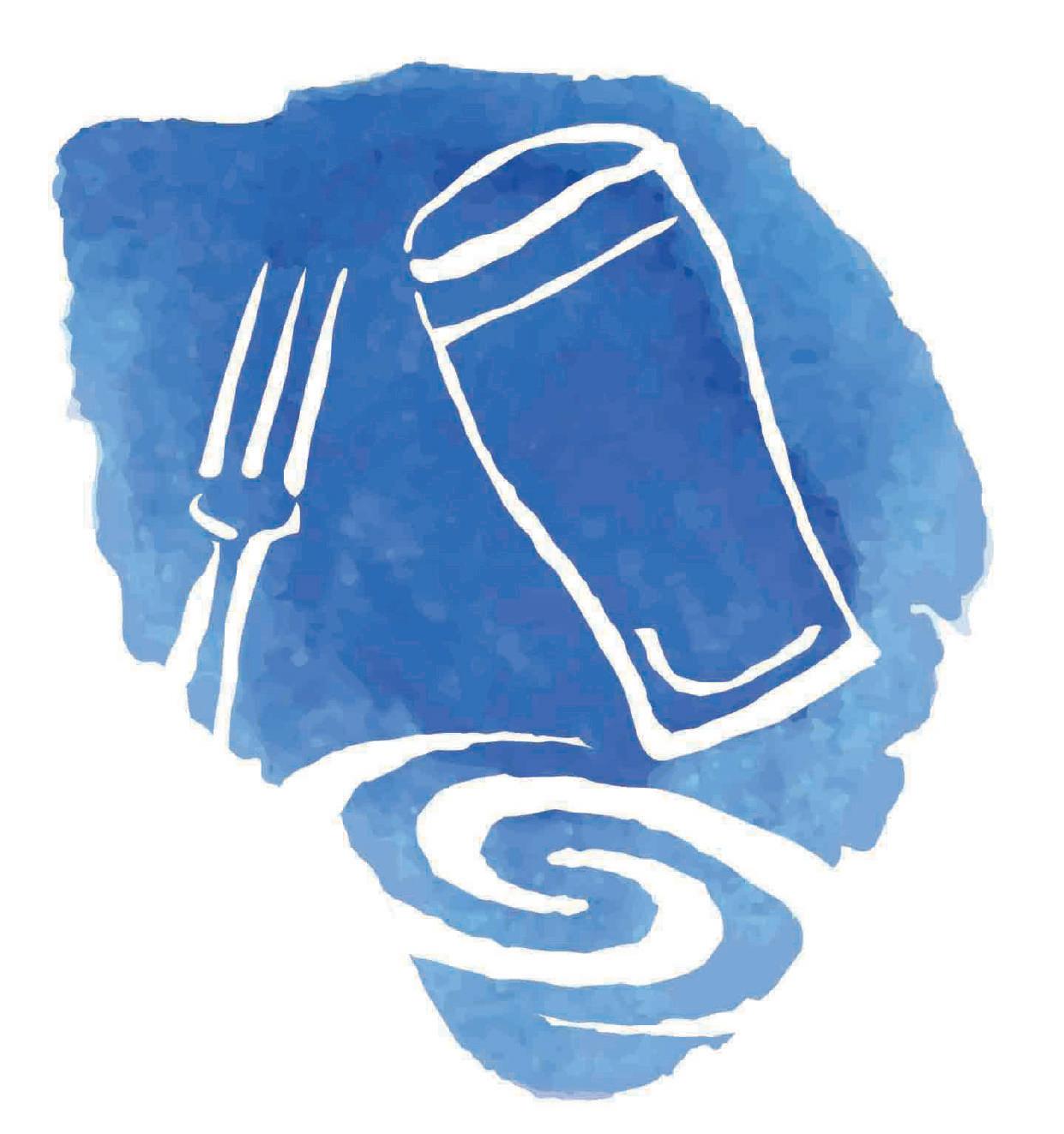
He also advised publicans to rethink times when the pub is quiet, suggesting that they consider creating selling spaces between breakfast and lunch, dinner and late night.
This could be brunch on the weekend or laying on all-day desserts or special offers such as ‘Taco Thursdays’
Pól also highlighted the lack of space designed for single customers on their own. Women (and men) can feel uncomfortable going into a licensed premises on their own and licensees could greatly benefit from a more thoughtful means of accommodating such individuals. This would pay huge word-of-mouth dividends, he believed.
Some pubs, such as those in the Brewdog chain, had made their pubs ‘pet friendly’ with good results.
Other establishments such as hotels had introduced the latest technology
such that rooms could be opened, meals could be ordered and even TVs could be controlled - all remotely by use of an app on the customer’s own smartphone.
Former LVA Chairman Noel Anderson & Bodytonic Group’s Trevor O’Shea joined NolaClan’s Alan Clancy and LVA Chair Alison Kealy on the Publicans Panel following the presentations.
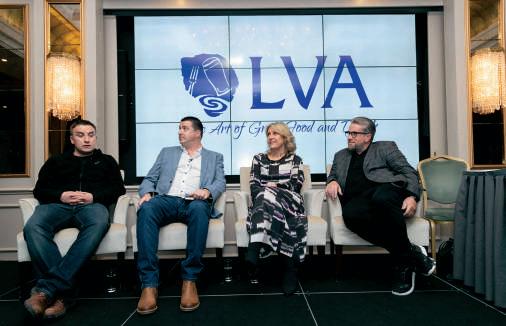
Ivan got the ball rolling by asking what, for them, had been the legacy of Covid?
Trevor O’Shea had had to learn to be a lot of different things during Covid
to be interested and passionate about the job is more difficult and the chef situation is still very difficult.”
Noel agreed.
“When we reopened everyone looked for pay rises,” he said.
Structural hierarchy was made transparent to his staff so that they could see what could be achieved.
“We’re paying mangers 15% more than we did pre-Covid,” he said, “I think this is imperative.”
But in this day and age accommodation problems loom large for his staff.
“They’re coming to us as they need pay increases to find somewhere to live. If the housing crisis could be solved it’d solve a lot of the problems we have.”
Kealys was constantly recruiting, agreed Alison, who pointed out that, “We’re struggling on finding more experienced people”.
Another issue during Covid had been rental legacy and how ‘understanding’ landlords could be (or otherwise).
“Most of them addressed this very early on in the pandemic,” said Alan who’d found the bigger the landlord the easier to deal with.
while Noel Anderson was pleased to be able to report that, “Every time we reopened the customers were keen to get back in and that gave me confidence”.
He’d been struck too by how those in the trade had helped each other through it, as had suppliers.
Alison Kealy had found adapting the business during Covid difficult but had enjoyed the benefit of having had a great team behind her. The LVA had been of great help here too.
“And what of the €3 billion tax warehoused?” enquired Ivan.
“Hopefully we’ll be able to manage by paying it gradually,” suggested Alison.
The midnight business never came back, said Alan Clancy, “The biggest problem is still the loss of staff. Our trained staff found other avenues; they found a better life-balance. This, for me, is the hardest part - to build training back up again”.
Ivan pointed out that the Hotels Federation reckons that some 19,000 people have left the industry.
“Getting staff is not as difficult as it was but holding onto them has proved difficult,” said Trevor, “Getting people
“Nearly all our landlords will end up with about 50% of what they’ve lost over Covid,” Alan reckoned.
Ivan pondered whether there had been a telescoping of business into Fridays and Saturdays.
“Thursdays for me are now much busier than they were” said Noel, “so we’ve got this as well as Friday and Saturday.”
Thursdays had proved particularly strong, agreed Trevor, but his Fridays had been “up and down” as had Saturdays.
“Where things will go next year I don’t know,” he concluded.
Alan took each unit on an individual basis in assessing business.
He believes too that the indigenous population from the country are not coming to Dublin as often as they used to.
The LVA currently had around 35 students on courses but Ivan wondered if that was enough, to which Alison pointed out that they have two such courses a year.
At Kealys she was “trying to be
clever in our use of key people. We’re trying to balance out experienced staff throughout the week”.
Rising costs coupled with pay demands become a vicious cycle that’s difficult to escape.
But what can be done to control costs?
“Well we’re not trying to open all the time just hoping people will come through the door,” answered Alan, “That’s a waste of time. I now get hourly reports on what we’re getting for opening.”
He judges the value of opening now on the amount of activity vs that when open all the time.
He’d closed down lots of energysapping things such as heating and air conditioning that don’t need to be on.
“We’ve a management meeting every week,” said Noel, “Costs are always on the agenda and energy costs are made front-of-mind.”
He recalls going into one bar which had heaters on but the door open.
“You must get staff conscious of energy costs and show them the bills,” he emphasised.
With food, he’s hoping to use group purchasing to steady his costs and hopes not to have to pass it on to the consumer.
Like most in the LVA Alison was experiencing huge difficulty on the food side now from food suppliers.
“Cooking oil is up 120%, for example” she said, “and we can get three price increases in a month.”
Gas bills had risen four-fold.
“Electricity is up two-fold, so we need to manage things very carefully at the moment.”
Trevor is bringing in solar panels and trying to reduce waste.
“Drink prices are OK at the moment but it’s no longer a case of negotiating downwards any more.”

Noel advised all in the room to check that they’re still in contract with their present energy supplier.
“Use experts to analyse your bill, the energy market and what may be your best move,” he said, “And always submit meter readings to get an accurate bill.”
Ivan asked the panel what works for them in terms of broadening their appeal through social media.
Kealys tries to create a community atmosphere via social media while Noel pointed out that at his venues, a
Staff Member of the Month is operated where that pictured member is highlighted.
Trevor uses social media even ‘though he personally dislikes it.
Ivan put it to the panel that with Cocktails, changes in drinking habits and Gen Z etc consumers are drinking less but perhaps more expensively.
“It’s only going one way with people drinking less and being more imageand health-conscious,” responded Trevor, “Non-alcoholic Guinness and Heineken0.0% are game-changers. People are going to the pub for a NoLo drink now.”
Noel agreed that in the last three years the trade has had to embrace the NoLo trends out there - and margins are just as good for nonalcoholic drinks.
“We’ve a page of non-alcoholic cocktails on our menu now.”
Cocktails still return the highest margin in the pub he pointed out.
When people returned to the pub they showed great appreciation for the draught product, said Alison who observed that Gen X males will start off with pints but can move onto Cocktails.
“Since the pubs came back Premium products are in demand,” noted Alan.
Is there a sense of dread building in the Dublin trade for 2023 thanks to the likely return of the old VAT rate, rising consumer mortgages etc postChristmas, asked Ivan, who personally believed that it would be the bigger ticket items that might be cut while smaller items such as spending €20 in the pub would remain.
Alan emphasised that, “We, as a nation, enjoy going out, it’s in our DNA. People will value things more and will go out and have a good experience, but they’re going to value the money more so they’ll be more calculating in what they choose to do. They’re going to go out once or twice a month but they’re going to go out ‘well’.”
LVA Chief Executive Donall O’Keeffe summed up the conference proceedings.
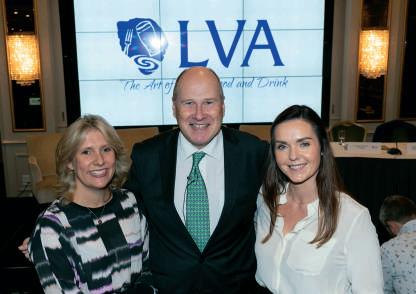
“There seems to be a realistic confidence that we’ll do the job that’s ahead of us,” he said,
“It has been three years since the last time we were all in the same room.
“Suppliers rowed in quickly at the start of the pandemic. They took back
kegs and supported us.
“The Government came good in the second half of Lockdown with financial support. A lot of mistakes were made by everyone but financially, they were there when we needed them.
“Pubs have also embraced the outdoors, which we welcome.
“Arising from Covid we confirmed that customers love our pubs and came back at every open door opportunity. The outlook from here to Christmas is overwhelmingly positive.
“Amazingly, the capital value of pubs has grown, a real sign of optimism and a barometer for the trade.
“So, in summary, the tokens for Christmas are strong. This will be the first proper Christmas in three years and we’ll have to build service requirements around it.
“As for 2023 onward, we’re not going to see double-digit declines in the trade,” he predicted, “It won’t be like 2008 or Covid, but one thing we have to get better at is financial management. Are we making money this day, this week , this month?
Financial management will be a key strength with energy costs etc.
“As for Premiumisation – can you deliver against that demand?” he asked.
“Health-consciousness is growing, manifesting itself in the drinks business in terms of No and Lo-Alcohols. We need to do a better job on that. There’s a clear consumer demand.
“But the single biggest challenge to trade in the next 12-24 months is consistent delivery of quality despite the inexperience of new staff and untrained staff.
“We need to professionalise how we manage our staff above and beyond the legal requirement.
“I think that the pace of change will accelerate, competition will intensify and grow bigger but at the same time, if done right, the rewards will be bigger too.”
All proceeds from the conference went to the charity Ireland for Ukraine. n
On its 40th Anniversary Barry & Fitzwilliam’s Managing
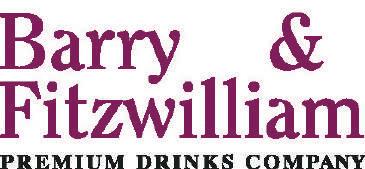
looks back at B&F’s first few years before bringing the story up-to-date.
The early 80s were a time of recession in Ireland.
In retrospect starting a drinks business back at that time was rather foolhardy - but I was an optimist then and still am now.
In our embryonic years we traded as Barry’s Wines & Spirits Ltd and even though 90% of our sales were spirits and even though we focussed initially on the Munster market, I would think that 75% of our business then was ontrade and 25% off-trade.
The most important products at the time to the publican were Paddy, Powers, Smirnoff, Hennessy and CDC. Jameson was seen as a Dublin whiskey at the time. In my first month I remember opening an account with Ballymaloe, Aherns of Youghal and Treacy’s in Youghal - all of whom still trade with us today. Longneck bottles were unheard of at the time until we started to import Corona.
Wine sales in pubs were miniscule and the most popular house wine was probably Pedrotti. Harp and Carling were the big lager brands. Heineken was only coming into the market having bought Murphy’s Brewery out of receivership in 1983.

The hospitality landscape has changed dramatically since then - there was no such thing as Cocktail culture - which is so important these days - except maybe in the five-star hotels.
Now, almost every bar has a mixologist. Every hostelry in the country has a wine list and many of the gastropubs are serving better food than some restaurants.
Back in the 80s you went to a disco which was probably held in the function room of a hotel for a late night out. It was very rare that a bar would have a licence extension for a late night. Then we got a nightclub scene where you could only buy wine: Kojak’s in Cork and maybe a dozen on Leeson Street in Dublin.
In the off-trade the important products were the same few spirits that I mentioned earlier as well as Teachers and Black & White Scotch.
Harveys, Winter’s Tale and Sandeman were bigger sellers than most wines except for Le Piat Dor, Blue Nun and Black Tower. Today most off-licences will have a few hundred different SKUs of wine, numerous craft and world beers and the idea of being able to buy a readychilled beer or bottle of wine in the 80s was absolutely unheard of.
So, the drinks market today has become a very sophisticated market. As a company we’re seeing phenomenal growth (both in the onand off-trade) on products such as Bols Liqueurs, Tia Maria, Disaronno and Passoa.
White Claw Hard Seltzer, which we launched in May 2020, now has 62% of the Hard Seltzer category and Brewdog Punk is now the Number One Craft Beer SKU.
In the wine market we’ve seen a dramatic increase in the sale of celebrity wines such as Graham Norton, Kylie, Sarah Jessica Parker, Gordon Ramsey and Gary Barlow.
The one takeaway from all of the above is that change is constant.
Our next project will be the launch of Obolon beer from the Ukraine which we hope to have on the market for Christmas. n
The latest round of energy price increases leads many in the trade to believe that their business will become increasingly unsustainable as we move into 2023 - especially when added to soaring commodity costs and wage demands.
The latest energy price increases spelled bad news for the consumer.
But it’s the hospitality industry that seems to be at the sharp end of the price increases when a premises runs out of contract with its energy supplier.
Lately, energy companies have increased those bills by 200%, 300% or even 400%.
Such price increases look increasingly unsustainable with energy being the next-most expensive item on the publican’s bill after salaries.
And there’s little or no room for manoeuvre in a pub in the centre of Dublin where those operating from morning to late night seven days a week will be harder hit.
A case in point is Alan Campbell of The Bankers Bar in Dublin.
“It’s only possible to get a year’s contract with these energy companies,” he explains.
His own contract was up in September, which was unfortunate timing with
Winter coming in.
“This year was totally different. My electricity bill had been 22 cent per unit but it went up to 62 cent, so almost tripled - but it’s the best I can get out of the three supply companies,” he says.
Where his Summer bill had hovered at around €1,500 a month, it has now gone up to an Autumnal €6,500 or €7,000.
And that’s just electricity.
“Gas won’t be as bad... but it won’t be far off it.”
Bills have tripled and quadrupled, typically occurring when operators come off contract, agrees Licensed Vintners Association Chief Executive Donall O’Keeffe.
He points out that if an operator has been on a contract with his or her energy supplier for the past 18 or 24 months and has come off it this Autumn, they’re facing a ferocious increase.
“The second issue, going hand-in-glove with that, is that it’s virtually impossible
to get a new contract but only ‘monthby-month’ with the energy suppliers so there’s no clarity or certainty on where the bills are going.”
It’s bad now, he says, but there’s a lot of concern about the future.
“There’s no doubt it has put pressure on margins and in kitchens which require big energy input for cooking and cooling,” he says.
The large food pubs are the most exposed.
“There’s huge pressure there” he adds, “and we’re also seeing strong increases in wage demand, in energy and food costs - virtually every cost is heading in the wrong direction...”
To help partially counter this, the Minister for Finance Paschal Donohoe announced the Temporary Business Energy Support Scheme in Budget 2023.
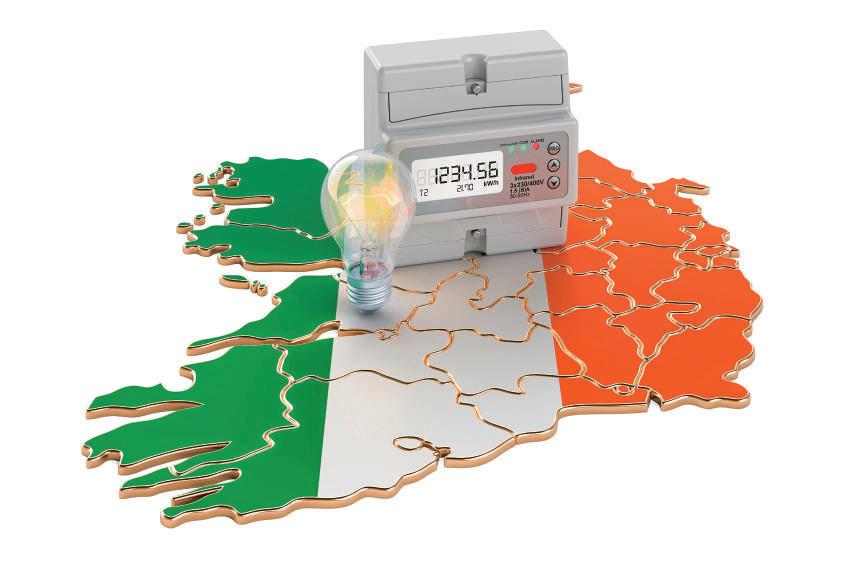

“This looks pretty straightforward and sensible, based on a 50% increase on unit costs for a comparable month a year ago,” comments Donall, “If you qualify, you get a grant of 40% of the increased costs up to maximum of €10,000 a month, “We would have liked it to be higher (50:50 for example).”

The TBESS announced in the Budget will certainly help, agrees Vintners Federation of Ireland Chief Executive Paul Clancy.
“While TBESS is welcome we remain sceptical that it will be enough for our members to get through the Winter,” he says, “As things stand the scheme is set to end in February which we argue is way too early. All the experts say the energy crisis will continue for the foreseeable future so our members will require support until the crisis ends.”
There’s little doubt that publicans everywhere are struggling with the sheer rapidity of these increases.
“This time last year my bill was €447” says Michael O’Donovan of The Castle Inn on Cork’s South Main Street, “now it’s €1,602, an increase of nearly 400%.”
He’s out of contract with his energy supplier now so his rate has risen from 28 cent per unit to 52 cent - and what had formerly been a Night rate of seven cents has just disappeared.
“I bought timers six weeks ago so the coolers and ice-machines all turn off at 12.45am and don’t come back on until before lunchtime when we open,” he says and while the Government’s 40% intervention is welcome, “We’re still having to pay the other 60% of the increase,” he points out.
Andy’s Bar in Monaghan, a former
“Gas won’t be as bad... but it won’t be far off it.”
Where once a year - or once every six months at worst - publicans would get notice of a price increase from their food suppliers, market volatility has seen such price increase notifications arrive every two or three weeks in some cases.
“There’s no sign of it abating, unfortunately,” said Paul Kelly, Director of the industry group Food Drink Ireland recently, “The average [cost] for 2023 is going to be higher again and that indicates we’re going to see a further wave of food inflation at retail level and food service level.”
At Andy’s Bar in Monaghan, Sean Redmond has been able to minimise food cost increases by preparing nearly everything inhouse.

“We make our own Mayonnaise, Garlic dip and all desserts, dressings etc. This isn’t always easy as we’ve less staff now but homemade food always tastes better!
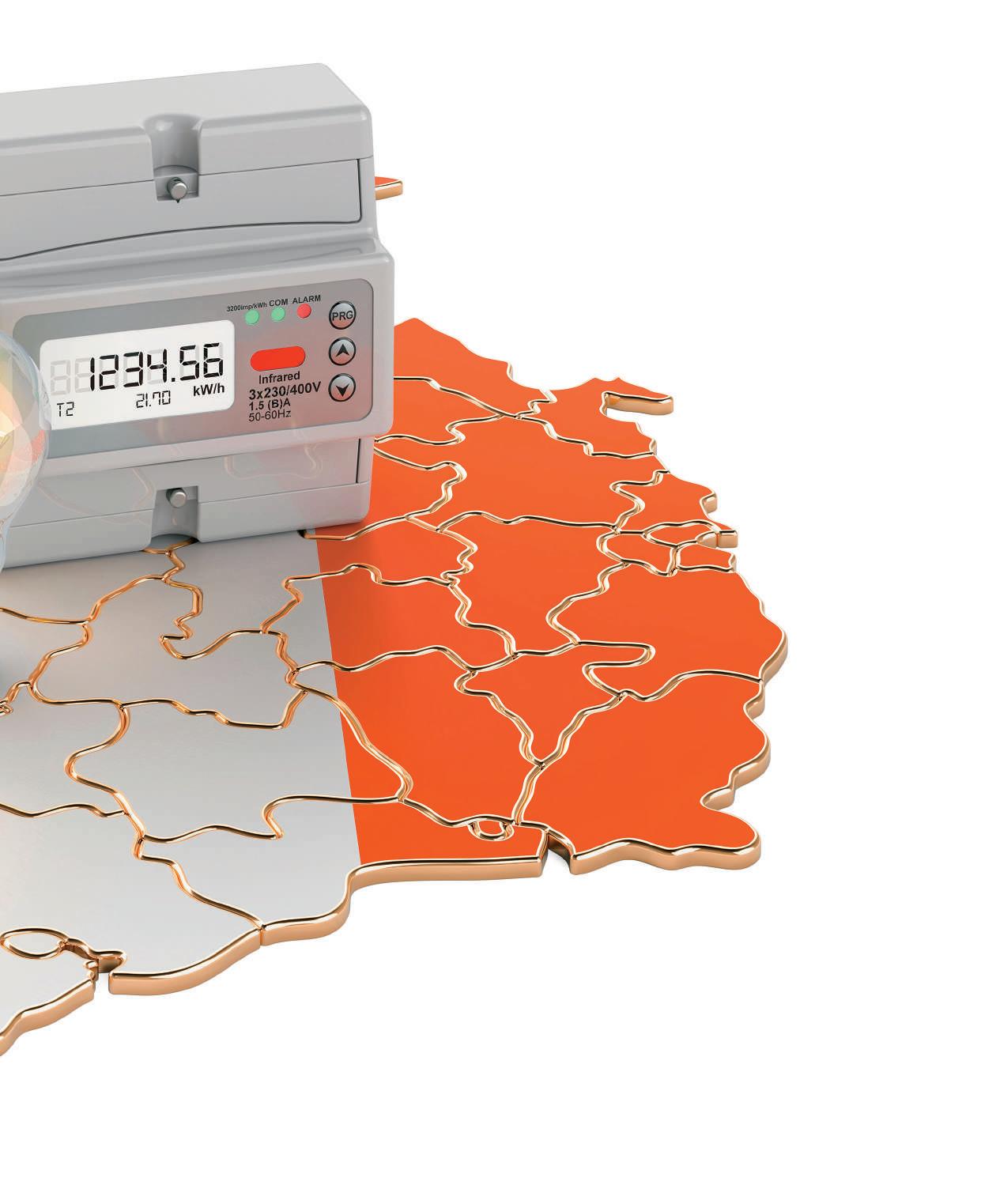
“We use our Blast-Chiller/ Freezer and Vac-Packer to keep food waste to an absolute minimum.
“We try to use local products and food in season and this will become a bigger factor as the cost to transport will only increase in the future.”
Sustainable Energy Authority of Ireland category winner, has taken considerable strides to cut energy costs.
“We’ve seen a 100% increase in our electricity bill,” says proprietor Sean Redmond, “Others going out of contract have seen increases of 400% to 500% for electricity and over 600%

for Natural Gas.
“Our bills have gone from €3,000 to €6,000 (including 9% VAT) on a bi-monthly bill.”
However, Andy’s has a structured energy management plan to an appliance level in place to include kW-rating, turn-on and -off time, energy maintenance, cleaning and checking schedules.
“We’ve benchmarked energy, water, waste, food waste, glass waste per cover,” says Sean, “At just over 4kWH we’re well under the EPA average of 8kWh per cover.
“For appliances with electrical elements start times are staggered depending on heat-up time to avoid exceeding Maximum Demand. We’ve sub-metered where possible to discover appliance overall consumption and profile how power is consumed. In recent years we’ve focused on improving the building’s thermal performance by insulating lofts, dry-lining walls, installing rigid insulation under floors and even lowering ceilings.
“The building is zoned to three areas: bar, restaurant and private room with a count-down timer sending heat to each area for a maximum of two hours. When areas are populated heat isn’t usually needed beyond this.
“Lighting, including emergency lighting, is 100% LED with motionsensors for toilets and storerooms. We’re constantly revising all of this as - like everyone else - our electricity has doubled. We’ve had solar thermal panels since 2007 and are now investigating Solar Photo-Voltaic, but solar PV isn’t a panacea,” he admits, “It’s easier and cheaper to reduce consumption by way of management and upgrading appliances - especially lighting and refrigeration - than generate your own power.”
The off-trade too has been hit by soaring energy costs.
“Our energy costs have gone up 150% since we came out of contract with our electricity provider earlier this year” comments Gary O’Donovan, National Off-Licence Association Chairman and Managing Director of O’Donovans Off-Licence Group in Cork, “with similar and even worse cases being experienced across NOffLA’s membership.”
demand,” he said, “We’ve also extensive air conditioning systems and these are now only used in extreme weather conditions.
“The Government’s Business Energy Support Scheme is welcome but will only go so far in aiding small businesses and given that the energy crisis is showing no signs of easing in the short-term, it’s likely that continued supports will be required.”
Some publicans are looking at closing part of their premises to save energy, cutting down on opening hours and limiting meal service to Sunday lunches. That way they avoid the added expense of opening up part of the pub thus saving on heating, lighting or staffing costs.
“The feedback from members is frightening,” observes Paul Clancy, “We’ve a situation where a year or two ago publicans were paying 16c per kWh but are now facing a unit charge of 80c or 90c. This is simply not sustainable, so it’s a huge concern.
“At the very least, we’ll see a huge number of pubs closing mid-week throughout the Winter months.
“That’s probably the best-case scenario - it could be a whole lot worse but at this stage, we simply don’t know. Thankfully, October was very mild so that helped mitigate the worst of the bills.”
Making that decision to remain closed on certain days actually saved quite a few proprietors money but then neither were they earning a livelihood.
The real worry is next year. Without state supports some of those barely surviving at present will have to close their doors for good.
“This time last year my bill was €447” says Michael O’Donovan of The Castle Inn on Cork’s South Main Street, “now it’s €1,602, an increase of nearly 400%.”
Independent off-licences have many fridges in operation so the energy price increases over the last few months posed significant problems requiring cutbacks.
“We’ve disposed of some fridges in my own stores due to their electricity
Paul Clancy warns, “The question Government must ask is this: ‘Do we want a viable hospitality trade in place next Summer when tourists start arriving?’.
“Because the stark reality is that the cost of doing business combined with the energy crisis is driving people from the trade.” n
At this time of year soft drinks sales rise significantly in Ireland’s on-trade. The explanations for this range from avoidance of over-consumption of alcohol on the pre-Christmas party circuit to being designated driver for a party of pubgoers during the Festive season.

Sales of soft drinks’ grew 11% last Christmas compared to Christmas 2020 according to NielsenIQ with carbonated drinks enjoying a €4 million increase in sales in the eight weeks ending on the 26th of December 2021 compared to 2020.
In the on-trade CGA’s On Premise Measurement data compared figures for pre-Covid Christmas soft drinks performance with those of last Christmas.
It found that soft drinks volumes were greatly diminished - by 42%while mixers showed a fall of nearly 40% between Christmas 2019 and Christmas 2021.
This led to a 41% drop in soft drinks value to just €49.3 million last Christmas compared to €83.6 million in Christmas 2019.
Mixers, too, suffered a drop in values of 38% dropping from €19.3 million at Christmas 2019 to €11.9 million by Christmas ‘21 although it has been pointed out that on-trade restrictions were still in place last Christmas.
Nevertheless with the range and quality available to the on-trade for its more demanding customers this Christmas and with this being the
first ‘real’ Christmas in three years coupled with a World Cup in the offing, there’s only one way sales can go - and that’s up.
As the Christmas season returns in full swing for the first time in two years, Coca-Cola HBC brings back Real Magic with the return of its annual Designated Driver initiative.
The campaign seeks to reward Designated Drivers who stay sober on nights out to ensure friends and family get home safely with two free products from the Coca-Cola range: Coca-Cola, Diet Coke, Coca-Cola Zero Sugar, Fanta, Sprite, Deep RiverRock and Fruice.



Not only will Designated Drivers be rewarded with two drinks across participating venues in Ireland and Northern Ireland, but Coca-Cola is also partnering with Q-Park to offer free parking spots in Dublin, Cork, Galway and Belfast every weekend in December.
This year to add even more Real Magic and recognise the important role Designated Drivers play, the Coca-Cola elves will add some sparkle and valet two Designated Driver cars at each location every Friday, Saturday and Sunday in December.

The initiative is supported by all leading trade associations in both Ireland and Northern Ireland.
Designated Drivers can avail of the two free soft drinks by making themselves known to bar staff at participating venues.
To find out how to book a

Designated Driver parking space for free and be in with a chance to have their car valeted consumers can visit www.coca-cola.ie/designated-driver
Designated Driver runs from the 1st of December to the 1st of January.
Participating venues will be featured on www.coca-cola.ie/designateddriver





The Island of Ireland’s Number One mixer Schweppes, holding 47.6% of the category by value, is kicking-off the Festive Season with its Christmas campaign ‘You’ve got the Christmas spirit, we’ve got the tonic!’, once again

Whatever the reason, soft drinks seekers will look for a wider, healthier and more adult soft drink selection this Christmas. We review some soft drinks selections in our Industry Report.
Sip into something festive this Christmas




driving brand relevance at this key time of year.
Kicking-off in November, the campaign creates cut-through in moments that matter spanning TV, Out Of Home, social, PR and experiential activations across both on- and off-trades.
Schweppes will drive footfall into on-trade venues this season, offering consumers a complimentary Gin & Tonic. This will see over 2,500 drinks served to target consumers across participating bars on the island, positioning Schweppes as the Christmas mixer of choice.
“Christmas remains a pivotal time for the Schweppes brand,” explained Andrea Whyte, Marketing Director, Coca-Cola HBC, “Demonstrating the popularity of the Number One mixer, over 1 million litres of Schweppes sold in the grocery channel last December which is around 24 litres every minute!”
The brand’s mission this Christmas will be to support the on-trade during one if the busiest periods of the year. On-trade deals and free stock will be provided to outlets, driving transactions and availability of key Schweppes packs. The support includes glassware and ‘gin trees’ to keep the brand top-of-mind for customers and patrons in-outlet.
Schweppes continues to build relationships with bar staff across the country by sharing a newly developed ‘suggested serve’ booklet. The sales team will also work in partnership with outlets to activate the Schweppes brand on menus, highlighting mixability opportunities and suggested serves.
Schweppes will also provide mixability gift boxes including samples of Schweppes Pink Soda and Elderflower, glassware and miniature spirit bottles for key on-trade customers to provide as giveaways on their own social media channels, driving interaction this Christmas.
With additional takeovers by the brand at flagship venues in Dublin, Cork, Galway and Belfast, visibility of Schweppes will be at an all-time high this Christmas.
The number One Irish Mixer brand Club has unveiled its bold new vibrant design. This sees the brand move closer to the Club master brand, with the energy from the Club brand mark echoed and built on by illustrations from its past that radiate out in a fun and playful style.


“It’s very important for us to keep such an iconic Irish brand contemporary and relevant to the modern consumer,” said Brian Greer, Marketing Manager, Britvic Ireland, “Not only has our focus over the years been on delivering a unique and superior taste experience, we know Irish consumers are eager to buy local brands - especially ones that matter more to them.”
Club’s new modern Irish design is intended to appeal to a broader, younger audience, focusing on the attributes of heritage, quality and reliability.
“We’ve big growth ambitions over the next five years and this next evolvement of the brand has been designed to transform how we engage with consumers while emphasising our Irish values through our unique history,” he said.
Available in 125ml and 200ml Non Returnable Bottle format for the licensed channel, Club Mixers’ portfolio offers a wide range of flavours, best enjoyed chilled over ice with a garnish of choice.
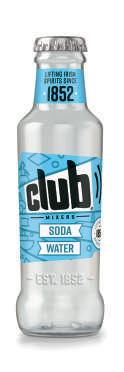

Club Mixers are the perfect accompaniment to spirits, expertly designed to blend deliciously with gins, vodkas and whiskeys.

Fast growing Irish Drinks brand Poachers continued its rapid upward trajectory during 2022. “Customers continue to be more adventurous and demanding in their choice of drinks,” says Brendan Colbert, Founder and Managing Director of the brand, “The growth in our Irish and international business has been highly substantive since January 2022.
“Irish produce has such a superb reputation for quality on the international stage - it’s something we need to protect and nurture.
“With Poachers we wanted to translate that dynamic for a modern Ireland where customer habits are changing but continue to be rooted in
quality and great flavour.
“Where we can’t produce an input ourselves we source sustainably from the best producers available.”
Poachers’ award-winning range will be extended for 2023 with new additions including ‘Poachers Lemon and Irish Mint Tonic’ and a new ‘Poachers Grapefruit Soda’.
“It will expand our range to accommodate for the full spectrum of white and dark spirts.”
Premiumisation continues to be the driving force.
“We have some exciting new developments for 2023 including an exclusive new five-year partnership for the fast growing Chinese market.”
‘The Mónóg Sleigh’: 40ml of Irish Gin
20ml Freshly-squeezed lime juice
10ml Simple sugar syrup
5 to 6 Fresh muddled cranberries
Top with Poachers Classic tonic Garnish with fresh mint leaves n
At this time of year pubs would normally be at their busiest in the run-in to the Festive Season. But what’s in store for this year? All we can be sure of is that there will be plenty of Christmas product out there to tempt the consumer - and that the unseasonal staging of the World Cup can only operate to the further advantage of both the on- & off-trade. We take a look at the Christmas drinks market.
Christmas offers the licensed trade a host of opportunities to sell more product, to have the consumer trade-up, fuelled this time by the first ‘normal’ Christmas since 2019. Indeed December could be a bumper month for the on-trade.
According to an Opus survey by NielsenIQ more than half (55%) of consumers plan to visit the on-trade over the Festive period and there are even opportunities to attract the 27% who’re ‘unsure’ for now.
December also brings the World Cup when just over half (51%) plan to watch games in pubs and bars. For operators and suppliers, balancing the needs of soccer fans with those of Christmas party-goers is going to be crucial.

All this will undoubtedly see a boost in on-trade sales this year albeit to the detriment of what would otherwise have been two widely separate sales seasons.
To celebrate the season, why not Put a Little Hendrick’s in Your Holidays with a bottle of Hendrick’s Gin?

Hendrick’s Gin is a marvellous present to complement the Winter festivities.
Distilled by Master Distiller LesleyGracie, it’s infused with a combination of Rose, Cucumber and 11 of the finest botanicals from around the world.
This Premium spirit is inspired by merriment and individuality, making it the ideal libation for any festivity.
Hendrick’s Cabinet of Curiosities, Lunar and the newly-released Neptunia would also make for an unusual gift this Christmas season.
Try the Hendrick’s French 75 Cocktail this Festive period:
Ingredients: 1 1/2 parts Hendrick’s 1/2 part simple syrup
1/2 part Lemon juice
Top with Champagne Lemon twist to Garnish
Method - add Hendrick’s, simple syrup and Lemon juice to a Cocktail shaker with ice.
Shake well and strain into a chilled flute.
For further information visit www.hendricksgin.com
Distributed By Richmond Marketing.
The Festive season is fast approaching and a bottle of the original triple-blend Tullamore DEW, crafted in the small town of Tullamore since 1829, makes the perfect choice this Christmas period.
Although every Irish whiskey offers something unique and interesting, no others offer the rare combination of blending three whiskeys, each tripledistilled and left to mature in three different barrel types.
This gives Tullamore DEW a complex flavour with a smooth finish.
If your customers are looking to try something slightly different this Christmas, Tullamore DEW XO Rum Cask Finish has sweet tropical flavours and is delicious on its own or added to a Festive cocktail. Alternatively, Tullamore DEW 12 Year-Old and Tullamore DEW 18 Year-Old are beautifully matured.
For further information, visit www.tullamoredew.com
Distributed by Richmond Marketing in Ireland.

For the perfect holiday gift, you can never go wrong with craft vodka. Tito’s Handmade Vodka is America’s Original Craft Vodka and one of the fastest-growing spirits brands in Ireland, states the company. In 1995, sixth-generation Texan Bert “Tito” Beveridge obtained the first legal permit to distill in Texas and created Tito’s Handmade Vodka on a plot of land in rural Austin where he built a small shack, rigged a pot still with spare parts and batch-distilled his corn-based, naturally gluten-free vodka.
Today, Tito’s Handmade Vodka is available in over 140 markets including the Americas, Europe, Asia, Australia and the Middle East. It’s distilled and bottled by Fifth Generation Inc in Austin on the same land where the whole thing started.

Tito’s is also highly committed to community causes, charitable organisations and disaster relief efforts across the world through the brand’s ‘Love, Tito’s’ initiatives including especially pet welfare efforts. In Ireland Tito’s is represented by Comans Beverages.
Named ‘Best in Ireland’ at this year’s Gin Guide Awards, Xin Gin’s Festive red and gold design makes Xin the ideal Christmas serve.

An Irish gin with an Asian heart, Xin’s Founders Michelle & Gareth McAllister wanted to merge what they loved about their two homes. The word itself means ‘heart’ in Mandarin and was designed to help family and friends

celebrate special occasions.
The design of the bottle, ancient celtic swirls contrasted with a modern eastern aesthetic, reflects the liquid inside – a perfect balance of European and Oriental botanicals. A gift that keeps on giving, the stunning bottle doubles as a vase or candlestickholder when emptied.
Xin Gin is a Juniper-led Dry Gin. The sweet taste of the Asian fruit Persimmon combined with a Cinnamon kick makes it perfect for Festive cocktails. You can spice up your traditional Xin Gin and Tonic with a wedge of Orange and a stick of Cinnamon for a Festive twist.
It’s the perfect drink to celebrate Christmas with family and friends. Available from Celtic Whiskey Shop, irishmalts and JC Kenny. Visit xingin.ie for more.
The Busker’s roots run deep at Royal Oak Distillery, County Carlow, a world class distillery producing hand-crafted Irish whiskey. Located on an 18th Century estate in Ireland’s Ancient East region, it’s one of Ireland’s largest operational whiskey distilleries.
The brand enjoys four types of
product, from single grain to single malt and single pot still, all at an affordable price.

The Busker Triple Cask Triple Smooth: a triple combination of the best whiskey styles Ireland has to offer with rich tropical fruits and sweet Vanilla notes as the taste buds begin to experience that malt, capping it all off with a superbly balanced mouth sweetness.
The secret to our Single Grain is in choosing the highest quality spirits and combining them with our handselected casks. Take a journey with The Busker Single Grain as we start off with sweet Caramel and soft Vanilla combined with delicious Oak notes.
The Busker Pot Still is a distinctive expression. Taste buds kick-off with some beautiful intense spices balanced with some toffee as we reach that long warm finish.
Enjoy our outstanding Single Malt matured in two different woods to bring complexity where notes of fruit meet floral Ederflower as the taste opens with intense richness, landing to a sweet chocolate note.
Distributed by Barry & Fitzwilliam.
Since its launch in April, istil 38

Superior Irish Vodka’s Creative Director and Co-Owner Pippa O’Connor Ormond has been “blown away” by the level of support from other female entrepreneurs.
From restaurant and shop owners to event-producers, women-owned businesses have been especially helpful in growing istil38’s Craft Irish












Vodka range so quickly.
As a result, Pippa wants to establish ‘istil 38 Collaborators’, a collective of Irish female entrepreneurs who istil 38 can engage with to amplify all their businesses.
“The istil 38 Collaborators acknowledges the female Irish entrepreneurs who’ve assisted me on our journey and whom we want to continually keep working with,” she said.
All istil 38 Collaborators are highachieving Irish female business owners and have worked with istil38 creating unique partnerships that promote both their company and istil 38.
They are Licensed Vintners Association Chair Alison Kealy of Kealy’s Pub and Lorraine Heskin of Gourmet Food Parlour and Gourmet Gifts.
For her istil 38 Collaborators promotion Alison will be selling the istil 38 Espresso Martini for €10.00 in Kealy’s for the rest of the year.


PJ & Denise Rigney (Founders and Owners of The Shed Distillery/ Drumshanbo Gunpowder Irish Gin) recently celebrated with staff at The Shed Distillery in Drumshanbo, County Leitrim, Gunpowder Gin’s winning the International Spirit Brand of the Year at the 2022 Wine Enthusiast Star Awards.
The Leitrim brand was the only Irish
brand and one of just two European distilleries to make the shortlist.
The Shed Distillery was also the only fully family-owned company in the running, competing against Dwayne the Rock Johnson’s Teremana Tequila, Brown Foreman’s Woodford
Reserve and Sazerac’s Buffalo Trace (representing the US) and Moët Hennessy‘s Ardbeg representing Scotland.
The win was announced live on screen from the US to over 80 staff and local supporters gathered at The Shed Distillery.
CKC offers unrivalled flavour, Premium ingredients and consistency delivered on every serve, sourcing only the highest quality spirits for bar-quality serves.

Unafraid to challenge category norms, CKC was founded in 2017 by two award-winning bar owners. Their creative flair, passion for their industry and sheer doggedness to be led by innovation with a planet-first mantra, has created a paradigm shift in Cocktail consumption. This has
1. What’s been CKC’s progress in supplying the on- and off-trade?
CKC was born in the on-trade. Wanting to challenge the industry norms of how everyone thought a Cocktail should be made, CKC was created to help busy hospitality venues serve Premium, hand-made Cocktails in a fast serve, high volume capacity. Following the global pandemic in 2020 the brand pivoted to create a B2C extension and now offers high-quality serves through retail to recreate those on-trade experiences at home.


Espresso Martini, Pornstar Martini and Bramble are amongst our top-sellers. We notice regional differences across the portfolio – for example, there’s a sweeter palate in Northern Ireland, so flavoured Daiquiris are big sellers there versus the South where it’s Whiskey Sour.
3. Having seen the growth in Cocktailsto-go - particularly in the US - during Lockdowns, what are the advantages of using CKC bottled Cocktails in the on-trade rather than simply ask the barstaff to make them?
Many of the skilled and experienced workforce have fled the industry, never to return. This has created a staff shortage, a vacuum of skilled bartenders and mixologists, pivotal to the incremental value to be added to hospitality outlets across the globe through Premium Cocktail serves. CKC offers a fast pour solution for a Premium, hand-made Cocktail which can be served in 30 seconds from order to garnish.
“Consumers continue to treat themselves to higher-end products while also becoming more comfortable with making Cocktails at home, having done so during the Lockdowns – a learned behaviour that consumers can quickly pivot to when inflation hits.”
4. How can CKC help the on-trade keep consumers in venue as a viable alternative to the Cocktails-to-go movement?
It’s all about choice – consumers are experimenting more than ever – and where the on-trade can win is by offering the consumer something new. We can offer venues a tailored and bespoke Cocktail menu.
The product requires the bartender to shake before serving, allowing the venue to keep that flair element for a true ontrade experience.

5. Should vintners consider using CKC to cover the growing on-trade demand for Cocktails-to-go?
Definitely. CKC offers a Premium, quick-pour Cocktail solution that increases venue penetration, reduces waste and dramatically reduces consumer waiting times – which, as a result, can reduce labour costs, increase revenue and enhance profit.
6. Is the emergence of RTD Cocktails creating an opportunity to bring sprits-based RTD Cocktails to new occasions? Absolutely. Historically, Cocktails were only served in certain venues – either destination high-end Cocktail bars or venues that could cope with demand. The ready-to-shake movement has opened the opportunity to serve Cocktails within any venue or space and we’re seeing huge opportunity within HORECA which was simply never there before.
back to the 17th Century Western French coast, known as prominent traders in salt and Cognac in the La Rochelle region. Their coat of arms is recognised by a swan, which historically populated the banks of the Charente River in Cognac as well as being a symbol of power, grace and elegance. The swan features on the Seignette VS label in tribute to the family’s legacy.
10Y-O (finished in Château du Breuil Calvados) won Double Gold at the 2019 San Francisco World Spirits and Haddington 11Y-O (finished in old Guyana rum) won a Gold at last year’s Irish Whiskey Awards.
Seignette VS is a modernday Cognac with notes of dried Apricot, Vanilla and hints of Honeysuckle on the nose, followed by Oaky Vanilla notes, a touch of citrus and a long, creamy finish on the palate.


allowed anyone to pour an awardwinning, hand-crafted Cocktail into a glass within 30 seconds - perfect for busy bars, restaurants, event spaces and hotels.
CKC offers this range of high quality serves in a 700ml Non Returnable Bottle or a 10 Litre Bag-in-Box, now available to buy through Noreast.
Finisher’s Touch wins Gold Finisher’s Touch (12 Y-O Single Malt finished in Justino’s Madeira) won Gold as overall winner in the Single Malt 12-15 Years-Old category at the 2022 Irish Whiskey Awards in Pearse Lyons Distillery recently.

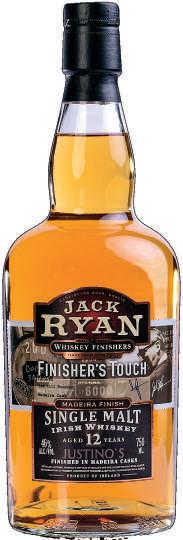
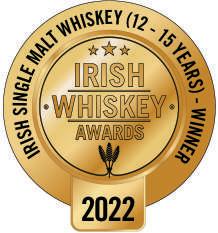
This completes the hat-trick of awards for our Generation Trilogy releases (celebrating six generations of Ryans in whiskey).
Finisher’s Touch, our most ambitious release to date, entailed Bourbon and virgin Oak casks sent 3,000 kms overland and by sea to Madeira island and Juan Teixeira of Justino’s, seasoned there with excellent Madeira wine, then brought back to our Dublin bonded warehouse and finishing hall, filled with the finest aged malt as the finishing began.
When Finisher’s Touch announced its readiness we bottled it ourselves, an exclusive release of 3,500 numbered and signed by family scion Eunan Ryan.
Generation Trilogy is also available as a pack of three x 50 ml bottles.
Contact; SM cathal@ circulateonline.com, JRW eunan@cult-drinks.com
A contemporary homage to the original Seignette Cognac established 200 years ago, Seignette VS’s fresh aesthetic and depth of flavour is set to engage a new generation of spiritlovers and inspire bartenders with its compatibility for Cocktails and mixed drinks. The Seignette family can be traced
Triple-distilled in County Cork and blended with malt in Sherry barrels for its unique taste, Paddy’s Share boasts 47% ABV, a bold robust flavour and a distinctly nutty, malty and charredwood character.

Paddy owes its name to the legendary distillery salesman Paddy Flaherty. Famed throughout his native County Cork for buying rounds of his favourite tipple, he became so synonymous with the whiskey he sold that in 1913 the distillery owners paid him the ultimate tribute by renaming the whiskey ‘Paddy’ in his honour.
Paddy, our most gregarious whiskey salesman, stood for two things: good times and great whiskey.
Now, 100 years later, we honour Paddy’s legacy with Paddy’s Share. For more information visit Hi-Spirts.ie
Toomevara

Paddy is distilled three times. Using the finestquality barley and water from Ireland’s East Cork countryside ensures a whiskey which is particularly light, wellbalanced and pure.
Paddy Irish Whiskey is the perfect choice this holiday season for classic Winter warmers such as the Hot Whiskey and Irish Coffee.
Disaronno - the world’s favourite Italian Liqueur

Disaronno enjoys cult status as an Italian style icon: smooth taste, unmistakable aroma, unique and distinctive bottle design, original square cap and golden label that adds a sense of contemporary elegance and style.
Disaronno is the proud ambassador of the Endless Dolcevita, telling a story through the iconic postcards of the Italian beauty.
Disaronno Amaretto captures the senses with its amber colour, rich aroma and incomparable taste which has made it the world’s favourite Italian liqueur. Amaretto, which means “a little bitter” in Italian, is an Almond-flavoured liqueur. How to make a Disaronno Sour
With over 100 perfect mixes, Disaronno Sour is a unique and refreshing drink in which the distinctive notes of Disaronno blend with the scent of freshly-squeezed Lemons. It’s easy to make too. All that’s required is 50ml of Disaronno, 25ml of fresh Lemon juice, 5ml of sugar syrup and egg-white.
Shake all the ingredients with ice and serve with a garnish of Lemon.
For more Cocktail ideas from Disaronno check out Disaronno.com
Distributed by Barry & Fitzwilliam.
Tia Maria is a sweet liqueur with a strong coffee character and a complex aromatic structure. Made with Madagascan Vanilla, Jamaican rum and 100% Arabica coffee, Tia Maria has a classic roasted fullbodied and rich taste. An exclusive cold brew extraction process gives it its distinctive intense coffee aroma followed by notes of chocolate and pipe tobacco, caramelised cane sugar and Vanilla.
The Tia Espresso Martini has been the classic evening pick-me-up since its creation in the 1980s. Tia Maria is the must-have ingredient for this classic Cocktail.

Learn how to make The Perfect Espresso Martini
the Cointreau medallion.
Spirit-lovers recognise Cointreau as a core building block in creating Premium Cocktails. It’s the cornerstone of more than 350 internationallyrenowned Cocktails such as the Margarita, Sidecar and Cosmopolitan. It enhances Cocktails with its perfect balance.
For more than 30 years the finest Orange peels are carefully selected by Master Distiller Carole Quinton to create the definitive Orange liqueur, producing, “A masterpiece crafted through the unique distillation of all-natural sweet and bitter Orange peels, resulting in a crystal-clear liqueur that strikes the perfect balance between sweetness and freshness”.

Distributed by Barry & Fitzwilliam.
All you need is: 25ml of Tia Maria, 25ml of vodka, a single or double shot of espresso and coffee beans to garnish. Fill a Martini glass with ice and set aside to chill. Pour Tia Maria, vodka and espresso into a Cocktail shaker. Fill the rest of the shaker with ice. Shake the ingredients together. Empty the Martini glass of ice. Pour in the contents of the shaker using a strainer and sieve into the glass. Finish with three coffee beans.
Check out TiaMaria.com for more cocktail inspiration.
Distributed by Barry & Fitzwilliam.
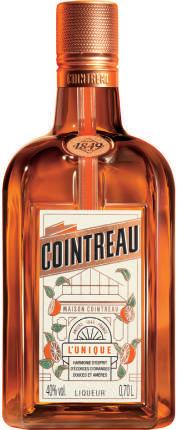
Cointreau has launched a redesigned liqueur bottle made from “two-thirds recycled glass”. Describing the brand refresh as the “most momentous of its kind in 140 years”, both bottle and label have been altered.
Looking to boost its sustainability credentials by using recycled glass, convenience and practicality were also considerations when redesigning the bottle which has been made four millimetres taller to facilitate grip and make it easier to hold. Similarly, the newly-textured cap provides better grip for an easier twist-off while simulating the skin of an Orange.
However the bottle still displays traditional design features including
As a result of its masterful production and generations of tradition in Cognac, today Rémy Martin produces Cognacs Fine Champagne including Rémy Martin XO, Rémy Martin 1738 Accord Royal and Rémy Martin VSOP. VSOP is composed of eaux-de-vie exclusively from Cognac’s highestquality vineyards, the Grande Champagne and Petite Champagne. Such eaux-de-vie offer an exceptional ageing potential and are known as Cognac Fine Champagne.

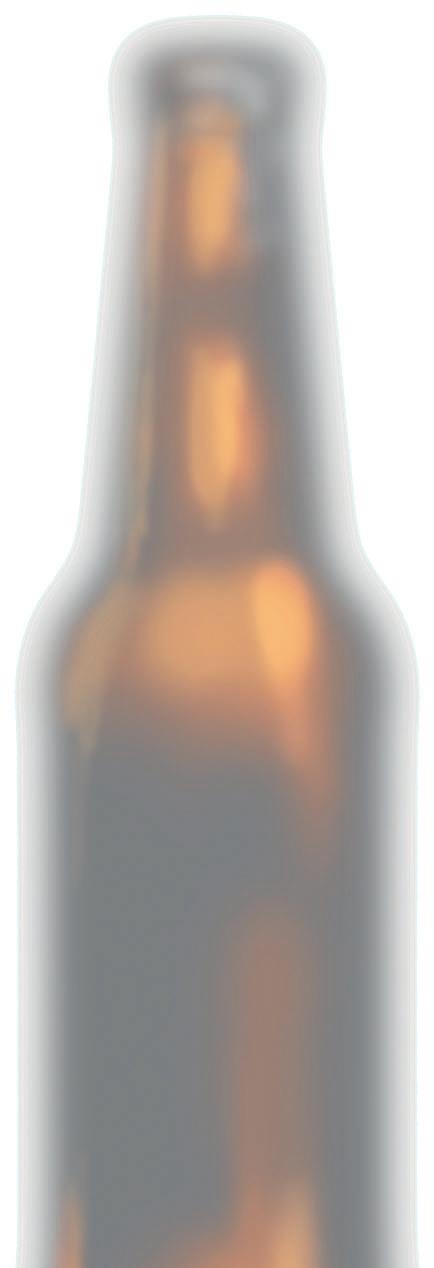



In 1927 Rémy Martin’s Cellar Master André Renaud created the very first VSOP Fine Champagne. This prestigious appellation would be officially recognised 11 years later as an Appellation d’Origine Contrôlée - a specific growing area protected by French law.
Accounting for one in three bottles of VSOP consumed worldwide, Remy Martin is the benchmark for the VSOP category and is blended from spirits aged from four to 12 years. This latest version finishes the Cognac in old barrels for a year before bottling.
It’s extremely versatile, so you may enjoy it neat, on the rocks, or in Cocktails.
We recommend drinking it with ginger ale or as Remy Grand Tonic made by mixing Remy Martin VSOP over ice, topped with tonic and finished with a wedge of fresh Lemon. Distributed by Barry & Fitzwilliam.
Bombay Sapphire has unveiled a new creative expression with Bombay Citron Pressé - a vibrant gin that captures the taste of freshly-squeezed Mediterranean Lemons.
Inspired by the classic Tom Collins cocktail, adding a modern twist, this lively addition to the Bombay Sapphire product range of premium gins offers a taste experience and an eyecatching colour created with a 100% natural fruits infusion and no added sugar.
Certain to refresh drinks repertoires, Bombay Citron Pressé is the perfect gin for elevating simple Cocktails and inspiring creative twists for Cocktail aficionados.
Instead of adding artificial additives or sugar, it contains hand-picked Mediterranean Lemons which have been harvested early in the season to capture their zesty, citrus notes before being hand-peeled and concentrated to create a 100% natural fruits infusion. This infusion is then expertly married with the brand’s vapour-infused gin –perfectly balancing the taste of freshly squeezed Lemons with the Juniper notes of the gin.
As with all Bombay Sapphire gins, there are endless possibilities for Cocktail experimentation. With its natural colour and taste, Bombay Sapphire is the perfect canvas for gin fans to celebrate their Cocktail creativity. Bombay Citron Pressé epitomises this with a refreshing twist on the classic Gin & Tonic, garnished with a squeezed Lemon wedge.
Asahi Super Dry has announced its partnership with World Rugby as the official beer for the Rugby World Cup 2023, kicking-off next September in France.
Japan’s leading beer will be served at all venues for the tournament and will be showcased to a global audience of over 800 million rugby fans.
Premiumisation, resonating with the Irish consumer. Total Peroni volume is up 65% YTD vs 2019 and at over 3% vs Total Lager.
The range also includes Peroni Gluten Free for those looking for gluten-free alternatives.
The brand has been brewing with Italian passion and flair since 1963, launching a 0.0% version this year.
The partnership will drive mass awareness and trial of the brand globally. A shared passion for excellence and creating unforgettable moments unite both parties as does the desire to break from conventions and create a taste for the unexpected.
Asahi Super Dry was first launched in Japan in 1987 as the first dry beer with a crisp and refreshing taste, revolutionising the beer industry there.
It’s now the #1 beer in Japan & the #1 Asian beer on the Irish market.
Brewed with precision to the highest quality standards under the supervision of Japanese master brewers, Asahi Super Dry’s advanced brewing techniques also deliver a quick, clean finish, introducing an entirely new genre of beer to Japan & to the world.

Shoppers are trading-up this Christmas, with Super Premium lager growing ahead of the category at over 16%. The Super Premium lager space is now comfortably bigger than standard lager, holding an 18% value share.
Peroni Nastro Azzurro has benefited from the ongoing trend towards


More recently, Peroni Nastro Azzurro launched 330ml slim can formats, available in a 6- and 10-pack, with the 6-pack can growing at over 252% YTD vs 2021.
Peroni Nastro Azzurro is known as a major player within the Super Premium Lager category, with 94% of Irish consumers aware of the brand.
Supported by it’s ‘Live Every Moment’ campaign inspired by its Italian style and heritage, the brand has come to life on TV, Out Of Home & online platforms, encouraging consumers to elevate and experience every moment with true passion & style.

The beer from ‘Ah here’... That’s how the hilarious new campaign for 5 Lamps describes the Dublinborn-and-brewed beer.
Relaunching Bulmers Ireland-owned 5 Lamps champions the character of Dublin, its colourful people, their language and the city’s great public houses where the great and the good all mix, sharing their stories, banter and of course a few pints.
5 Lamps is a locally-brewed beer with roots planted firmly in a modern, contemporary but authentic place –Dublin.

Just like the beer itself, the new campaign is made to be distinctive to stand out in a very crowded category.
That sense of local is very important to an audience increasingly seeking out local brands and supporting local success stories.
The last number of years have emphasised to many that it’s good to feel that a brand ‘gets’ them and understands where they’re at and what’s important to them. The great thing is, in Dublin, everyone can feel like a local no matter where they’re from. The ‘here’ of ‘ah here’ is an important part of the campaign running on video-on-demand, social, radio, Out Of Home and in-store as well as having a strong on-trade presence.
There was a hum about town this Summer over newcomer Zingibeer. Who and what is it? Father and daughter duo Kevin and Rachel Byrne have set out to establish Zingibeer as Ireland’s first and Premier ginger beer brand, a traditional ginger beer made using fermented Ginger, Lemon zest and botanicals.
It’s also available in 500ml bottles in off-licences nationwide. Distributed by Grand Cru Beers. See zingibeer.ie Phone: 01- 8307 821. Sales enquires to info@zingibeer.ie or +353879040111.

Ireland’s Number One cider Bulmers is synonymous with drinking occasions celebrated in Summer, over ice. To capitalise on this brand strength and positive position, Bulmers will drive consumption moments and relevance in the Winter period with a Bulmers Mulled Cider Christmas campaign.
The campaign kicks-off in December with full Through The Line support.

Bulmers’ Christmas TV ad will reappear on air ensuring the brand is top of mind. This will be amplified by a heavyweight social media and Out Of Home plan.
In the on-trade a series of premium Bulmers Mulled Cider experiences will pop-up in selected pubs throughout the country giving the public the opportunity to sample Bulmers Mulled Cider in the run-up to Christmas.

Barefoot, the number One US wine brand in Ireland, recently rolled out its Barefoot Buttery Chardonnay to the Irish market.
“Creamy and smooth, Barefoot Buttery Chardonnay is bursting with Pineapple aromas and layers of toasty Oak that perfectly complement the smooth and delicious Vanilla finish,” states the company which describes Barefoot Buttery Chardonnay as a perfect accompaniment to an indulgent chicken in cream sauce, a cheeseboard or fresh crab, served with plenty of butter.

At 4% ABV Zingibeer is the refreshing thirst-quencher consumers didn’t know they were waiting for…a ginger beer not only for “ginger beer drinkers”.
The newcomers to the Irish drink scene scooped up two awards already this year, winning Bronze for Ireland in the World Beer Awards and taking home Gold in the competitive category ‘fermented alcoholic beverages’ at blas nahEireann.
Uniquely positioned as the only Ginger Beer on draught, Zingibeer sets out to take its place as the clean label alternative to the draught ciders and beers that have dominated for so long. Zingibeer is gluten-free, vegan-friendly, sulphitefree and contains only natural ingredients.
In the off-trade Bulmers will be giving shoppers the chance to have the experience of hot Bulmers Mulled Cider at home.
In selected outlets, shoppers will receive the gift of a Bulmers Mulled Cider kit free with every purchase of selected Bulmers packs. See Bulmers social channels for more detail in December.
“Barefoot is all about creating wines that are fun, approachable and flavourful and Barefoot Buttery Chardonnay ticks all those boxes,” said Philip Lynch, Country Manager for Ireland at E&J Gallo Winery.
“‘Buttery’ is an approachable and easy to understand term that nicely expresses the creamy notes of the wine and the 13.5% ABV Barefoot Buttery Chardonnay’s success to date suggests that this is something that resonates with consumers on both sides of the Atlantic.”
Since its launch in 2021 Barefoot Buttery Chardonnay continues to grow rapidly in the UK, up 220% over the last 52 weeks, emulating the performance of the Buttery Chardonnay category Stateside which has seen 12% growth. n


#KeepCoole this Christmas with a lighter, fresher, more versatile Irish Cream Liqueur
Coole Swan, the independently owned and family run Irish cream liqueur, is disrupting the Irish drinks industry this festive season, with unexpected serves and dynamic flavour combinations. Those who try it can expect to enjoy Irish cream liqueur like never before. The silky liquid blends effortlessly to create a stunning range of delicious cocktails.
Nothing on the Irish market compares to the versatility and quality of Coole Swan, a refreshing modern craft blend of whiskey, chocolate and cream. The perfect drink to enjoy chilled, over ice or in cutting edge cocktails with friends and family this festive season, and the ideal gift for those who enjoy superior Irish products and unique flavours.
Made in Co. Cavan, Coole Swan is a contemporary take on a classic - designed to be savoured and enjoyed whatever the occasion, for those wanting to add a drop of luxury to their every day. Coole Swan was born of a vision to reinvent Irish cream liqueur for a modern world.

The multi award-winning drink was perfected after 231 attempts to create the ultimate balance of its core ingredients: single malt Irish whiskey, smooth Belgian white chocolate and fresh Irish cream, resulting in a distinctively fresh, light, and smooth taste, expertly blended by the passionate and dedicated team at Coole Swan.

Its use of quality ingredients and modern craft has reimagined and reinvigorated traditional Irish cream liqueur, rejuvenating the drink for a new audience.
Coole Swan brings a fresh Irish perspective to the world of cream
liqueur, encouraging playfulness and creativity.
Coole Swan is available in Tesco, SuperValu, Dunnes, O’Brien’s and a range of independent retailers across Ireland. Available in a 700ml bottle which retails at €26.
Coole Swan CEO & Director, Mary Sadlier, says: “We’re proudly independently owned and family run, bringing the spirit of our liquid to life for a new and adventurous drinker. Coole Swan was born of a vision to reinvent a classic Irish product, a perfect blend of whiskey, chocolate and cream. We use Irish single malt whiskey and Irish cream as well as the best quality Belgian white chocolate. However, it is our spirit that is uniquely Irish and that is what we embody in the bottle: fun, the energy of youth and the desire to enjoy every day. We’re thrilled with the reaction to the product from consumers and retailers alike. Our retailers have proudly supported us as an independent brand and we’re pleased to see our sales rapidly increasing, showing there is place for a modern, fresh Irish cream liqueur in today’s market.”
Customers can discover more information about this beautifully crafted Irish product and the inventive ways to serve it at www.cooleswan.com, or follow on social media for all the latest updates @cooleswan on Facebook and @coole_swan on Instagram.


For adults aged 18+ over. Drink Coole Swan responsibly, visit www.drinkaware.ie for more information.
• The traditional creams category is important to the industry due to its size and volume growth. In Ireland, 2021 saw 25% growth vs 2020, twice the growth rate of gin.
• However, there is a ‘sameness’ about the category. Visually it has been dominated by brown bottles and images of rolling hills.
• The demand for reinvigoration within the category is already being felt, consumers and trade are ready for a fresh take on creams with a focus on quality and new, more relevant ways to enjoy them.
• A whole new generation of consumers are motivated by having great experiences but also by balance in their lives, ‘drink less, drink better’. They want no compromise when they choose to enjoy a drink. This is showing up in the growth of two key occasions - ‘sipping over ice’ and premium cocktails.
• Coole Swan is well placed to be the drink of choice in these occasions and for these consumers.
• Coole Swan’s award-winning liquid is lighter, fresher and easier to mix than traditional creams which makes it more versatile. By offering consumers innovative serves and cocktails Coole Swan is already benefitting from these trends.
• Coole Swan represents a much-needed fresh take on how the next generation can enjoy creams; a reinvention of an Irish classic for today’s world.
Particularly at this time of year No alcohol/Low alcohol drinks make their presence felt in a variety of ways so publicans should consider offering a reasonably wide selection of NoLow products for good reason.

Our Industry Report looks at what’s out there in a considerably enhanced market.
According to figures from NielsenIQ No alcohol/Low alcohol drinks represented the only growth segment in the alcohol market last Christmas, with sales up 26% on the same period in 2020.
When NoLo sales are combined with the strong growth of soft drinks sales last Christmas, the signs are there that increasing numbers of Irish consumers will be choosing a more alcohol-free Christmas than heretofore.
But that doesn’t mean they don’t want to be socialising in the pub.
Despite all the indications leading up to last Christmas, the Irish FMCG market managed to hold onto the extraordinary growth seen in 2020, according to Karen Mooney, Commercial Leader at NielsenIQ Ireland.
“As Omicron began to spread widely in the week running up to Christmas 2021, Irish shoppers redirected spend into the home which meant we avoided a sales decline.
“We also saw a return to prepandemic Christmas trends as consumers chose to spend less on alcoholic drinks and more on soft drinks and No/Low alcoholic beverages.”
Following Christmas last year some 4% of NielsenIQ’s survey respondents intended switching to a lower ABV product in January and this was most prominent among 18 to 24 year-olds at 6%.
The value of the NoLo market saw considerable growth in the week
ending the 26th of December last at 20.6% compared to growth of just 9.4% the previous year over 2019.
Global data from the IWSR indicates that nearly half (43%) of consumers now substitute NoLo for alcohol on some occasions. However less than 20% avoid alcohol completely.
“While January has become a popular month for people to cut back or abstain from alcohol” said IWSR’s Chief Operating Officer for Drinks Market Analysis Emily Neill, “interest in No- and Low-alcohol drinks has increasingly become a year-round trend among consumers across the world.”
Health-consciousness is growing, manifesting itself in the drinks business in terms of No- and Lo-Alcohols, stated Licensed Vintners Association Chief Executive Donall O’Keeffe at its recent Conference, “We need to do a better job on that. There’s a clear consumer demand.”
This followed a member of the conference panel discussion group - Bodytonic Group’s Trevor O’Sheapointing out that, “It’s only going one way with people drinking less and being more image-conscious, healthconscious etc. Non-alcoholic Guinness and Heineken0.0% are game-changers. People are going to the pub for a NoLo drink now.”
Another panellist, Noel Anderson of the Bridge 1859 and Lemon & Duke, agreed that in the last three years
the trade has had to embrace the non-alcoholic trends out there - and margins are just as good for nonalcoholic drinks.
Enjoy the refreshing Italian taste of Peroni Nastro Azzurro this Christmas
New Peroni Nastro Azzurro 0.0% offers the same superior taste experience as Peroni Nastro Azzurro, but with 0.0% alcohol.
Peroni Nastro Azzurro 0.0% aims to serve occasions and social moments where beer-lovers seek a superiortasting alcohol-free beer.

It’s crafted with superior Italian ingredients including the signature Nostrano dell‘Isola maize grown exclusively for Peroni Nastro Azzurro in Northern Italy to create the same uplifting Italian taste with 0.0% alcohol.
Consumer testing revealed that 90% of tasters felt the flavour matched that of Peroni Nastro Azzurro and its high-
quality taste was noted by 92% of the panel.
This new technology allows the same signature recipe as Peroni Nastro Azzurro (brewing since 1963) to be used and only after the characteristic aroma and taste profile of Peroni Nastro Azzurro is fully developed is the alcohol gently removed to deliver the crisp and refreshing Italian taste.
This Christmas whether meeting friends at a bar, or relishing time at home there are no limits to when and where consumers can enjoy Peroni Nastro Azzuro 0.0%.
No alcohol got Punked up - all the flavour but none of the alcohol.
Say hello to the Punkiest nonalcoholic beer in town. Brewed with eight different hops from North America, New Zealand and Europe, juicy tropical fruit mixes it up with grassy and pine notes - all sitting on a solid malt bassline.
low alcohol beer that we’d be happy drinking ourselves.
“To do this, we had to strip down the process and rethink how we brew, looking at everything from malt and yeast selection to mashing and sparging techniques.
“Low Tide took more than a few runs on our pilot system to get dialled-in and is still one of our more difficult beers to make.
“Pitching it at 1% ABV gives us the all-important bit of extra body we want to carry the hops.”
Low Tide is finished with a restrained dry hop, giving it a fresh, citrusy aroma resulting in a crisp, refreshing American-style pale ale - perfect for early risers or those simply keeping an eye on the units.
Made using only the finest distilled botanicals, just like Gordon’s London Dry Gin Gordon’s 0.0% provides the bold, Juniper-led character you know and expect from the brand. This makes it the perfect alcohol-free alternative to your usual choice of Gordon’s and tonic.
The innovation team at Gordon’s has combined years of expertise and historic gin-distilling knowledge to create a credible alcohol-free experience.
known only to a handful of people, resulting in that Juniper-led taste expected from Gordon’s when choosing not to drink alcohol.
Gordon’s 0.0% is the choice for gin drinkers when they opt not to drink but are tired of compromising on taste and experience. Gordon’s 0.0% is also only 24 calories per serve, perfect to accompany Festive nibbles.

Feeling the pinch this Christmas?
Ireland’s favourite wine brand Santa Rita 120 delivers excellent value-formoney and outstanding quality. Try the crisp and zesty 120 Sauvignon Blanc with your Smoked Salmon
The bitter finish belies its ABV, rolling in at 35 IBUs, providing the perfect retort to those who push alcohol-free beer devoid of character.
BrewDog is on a mission to prove that alcohol-free does not equate to taste-free. Now it brings you a new alternative to the mainstream, a beer for those seeking a Point Of Difference at 0.5% ABV that brings all the attitude of the flagship Punk IPA.

No alcohol just got Punked up. This is Punk Alcohol-Free.
Distributed by Barry & Fitzwilliam.
Low Tide, Kinnegar’s 1% Low Alcohol Pale Ale, is quietly muscling its way into an important position in the independent Donegal brand’s core range.
For a brewery such as Kinnegar, technical choices used by big breweries aren’t an option. A dealcoholiser is not only prohibitively expensive, it also goes against the grain of Kinnegar’s brewing ethos.
“The challenge” explains Kinnegar’s Head Brewer Rick LeVert, “is in producing a traditionally-fermented

The botanicals used in Gordon’s 0.0% are individually immersed in water, heated and then distilled before being expertly blended together to capture the essence of Gordon’s in an alcohol-free alternative. This special distillation process is a closely guarded secret,
starter or the 120 Pinot Grigioalways a crowd pleaser. Or for those watching the calories or alcohol units, there’s the 120 De-alcoholised or De-Light range offering both white and red wines including the lightly floral Moscato and fruity Cabernet Sauvignon.
Lyre’s award-winning Classico doesn’t just mimic an Italian Sparkling, it stands alone as a Premium nonalcoholic celebration in a bottle.
Whether you’re the designated driver, a moderate drinker or simply don’t want to worry about the morning after, Lyre’s is for those who wish to celebrate in style this party season.
Lyre’s Classico is exclusively available in Brown Thomas, Grafton Street, purchased in its very own gift box.
If you want to make your Lyre’s extra special, on December 3rd you can pop by the Grafton Street Store, taste a sample and have your bottle personally calligraphed!
Lyre’s Classico currently retails at €14. For more information on Lyre’s full collection, visit www.lyres.eu
The drinks industry was out in force for the global unveiling of the latest curious creation from Drumshanbo Gunpowder Irish Gin at Nolita in Dublin recently - Drumshanbo Gunpowder Irish Gin with California Orange Citrus.













A gathering of 61 regional winners for the Irish Pub Awards 2022 attended a management training seminar at the Galmont Hotel and Spa, Galway city, before the Gala Final.
From
From











From
From
The harsh reality facing Irish businesses today is that most will be doing well to keep their doors open over the next 12 months as skyrocketing energy bills sap every business in the country, believes refrigeration supplier Caterboss.
At the core of every hospitality business lies a range of refrigerated products.
Pubs have bottle coolers to keep beer chilled. Restaurants have stainless steel fridges, commercial chest freezers and counter fridges to stock food and prep dishes. You’ll be shocked to learn the annual consumption of these machines unless you specifically bought an energy efficient-rated machine.
But without financial investment knowledge the average business-owner can make a 50% average return on their investment over the next three years with Caterboss.
A more energy efficient-rated fridge with doors such as a Galaxy Multideck C-Rated appliance that uses about 7,000kwH per annum, saving a business around €74,214 a year in electricity costs or €742,140 over the expected life of the fridges.
A lot of business owners inherited the equipment they use in the premises they now own or leasethe older the equipment the less efficient it’ll be in terms of electricity consumption. Not replacing equipment or purchasing the cheapest option in the catalogue might have seemed a reasonably sound business decision four or five years ago when weighingup the cost-benefit of doing so. But the days of cheap energy are gone and those very machines and equipment that one depends on to run a business on a daily basis are now bleeding bank accounts dry.
Take one example: Pat has a number

of Multideck Fridges in his shop, fridges that take cans of lemonade or bottles of Orange. Open-fronted, these are the biggest offenders where they’re trying to cool the shop, not just products stocked in it.

Pat’s Multideck Fridge is four years old, installed before Covid. He bought a reasonably well-known brand and paid good money for it. What he didn’t pay attention to was its energyrating which in this case happened to be an F Rating. The annual electrical consumption for this 12ft fridge is approximately 31,738kwH. That’s about €15,869+VAT based on the most recent commercial bill.
Pat has six of these units. If he upgrades to a more energy efficient-
rated fridge with doors such as a Galaxy Multideck C-Rated appliance that uses about 7,000kwH per annum, he’d save his business around €74,214 a year in electricity costs or €742,140 over the expected life of the fridges. That’s not including the other fridges. This is a real world example from a real customer.
To replace one of these fridges would cost Pat approximately €13,000+VAT. In turn he can save €12,000+VAT in electricity costs per year. And that energy saving will continue year-on-year for the rest of its operating life.
Such an investment into your business can make an average return of over 50% over the next three years.
By acting now and investing capital into better energy-rated refrigeration equipment you can give your business a fighting chance against the soaring cost of electricity.
Call us on 01-6875772/019011681 and a member of our Caterboss team will assist and advise on how we can help you save a huge amount of money on electricity outgoings. We can arrange a free site visit to assess your current consumption and help identify where you can make the most savings.
Visit us at www.caterboss.ie
Lambay Whiskey has launched a Single Malt Castle Prestige Edition 20 Year-Old in a limited edition (only 8,000 bottles) first-release Single Malt whiskey described as the quintessential expression of the brand.

The luxurious triple-distilled 20 yearold superior aged distillate has been carefully aged in Bourbon barrels for 18 years before being finished for a further two years in Camus Cognac casks that have been exposed to the sea air under the watchful eye of Lambay’s Master Blender Yonael Bernard.
Cognac is one of the richest French eaux de vie and the Camus French Oak casks that Lambay Whiskey matures in are renowned for their quality and taste. The combination of both contributes to a very elegant, rich, fruity, woody, exotic taste with a hint of spice.
Lambay’s bonded warehouse, The Sea Cask Room, allows the whiskey to undergo its unique maritime
maturation process, giving the perfectly-placed French Oak casks the opportunity to absorb the rich microclimate of the maritime winds and sea pollens on Lambay.
Water from the Island’s own spring, Trinity Well, is used in the whiskey’s final flourish.
Boann Distillery scooped five awards at the recent Irish Whiskey Awards, making it one of the biggest winners on the night.
The family-owned distillery won across several categories for its whiskeys, gin and whiskey liqueur.
County Meath-based Boann clinched Best Irish Gin for Silks Gin and Best Irish Newmake Spirit/Poitín for the Boann ‘New Born’ New Make Spirit - a winner at last year’s World Whiskies Awards where it won World’s Best New Make Spirit, making history by becoming the first whiskey in Ireland to win an award for the Best New Make Whiskey in the World.
Adding to the haul were three Golds for The Whistler PX I Love You nine-
year-old single cask release, its 1848 Apple Brandy and The Whistler Irish Honey liqueur.

Launched last year and named after the jockeys’ silks worn at the famous Bellewstown racecourse that can be seen from the distillery, Silks Gin is distilled by hand in small batches in its 500-litre custom copper pot still.
It contains 14 botanicals hand-foraged from the family’s Apple orchards, including Apple blossom, honey, Elderflower and Hawthorn blossom.
Lambay has also crossed the traditional whiskey divide by collaborating with local Dublin artist David Norton for the launch of this new Single Malt 20Y-O.

David took a cross-section of some of the indigenous volcanic Lambay porphyry rock - known in history as the stone of fertility by Byzantine emperors - and unlocked its secret beauty hidden inside. Revealing stunningly colourful visuals with complex crystalline formations, David has captured a slice less than 5mm long to “unearth” what lies within.
This art collaboration will be used across the brand’s core communications for this new release both Above The Line and as a digitalfirst campaign called Unlocking the Untold
The Lambay Whiskey Single Malt Castle Prestige Edition 20 Year-Old is set for sale throughout the EU, US and Asia.
Soon after launching, it won Gold at the Beverage Testing Institute awards in the US.
The Single Pot Still is a mash of 40% malted barley, 55% green barley, 3.75% oats and 1.25% rye.
Boann employs 70 people between its €20 million state-of-theart distillery outside Drogheda and its cream liqueur facility in Clonmel, County Tipperary.
For further information, visit www.boanndistillery.ie n
One such developing theme is the growing trend towards ‘biophilic design’ where the outside world meets that inside in seeking to connect customers at a venue more closely with nature. The attraction of this can be seen in outlets such as Annabels in London or La Diva in Valencia, Spain.
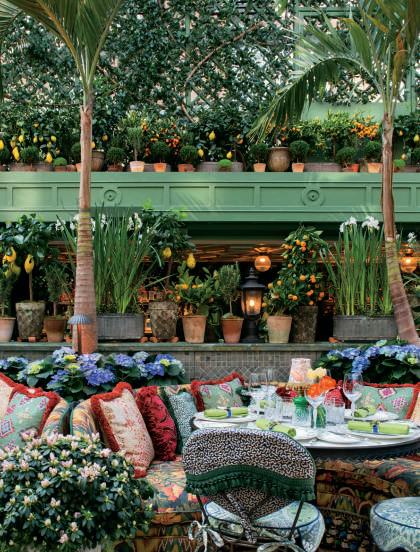
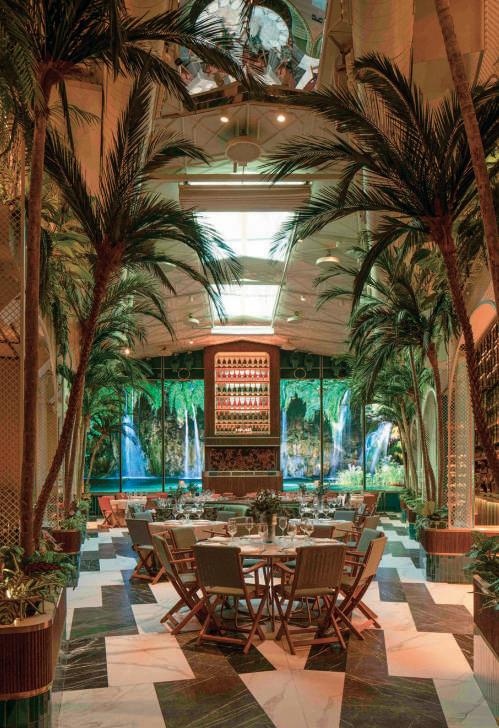
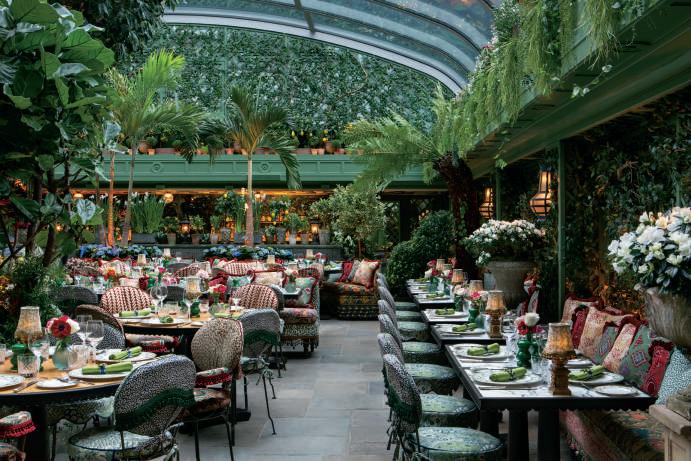
“Business owners are experiencing a perfect storm of increased operating costs and severe recruitment challenges while their own costs-of-living soar.” - DIGI Chair Kathryn D’Arcy.
“When in doubt, put a picture of a dog with a pint up online….” - Bodytonic’s Trevor O’Shea, who personally dislikes social media, speaking as a discussion panel member at the LVA’s Conference 2022.
--- “I know you pay him too much” - Ivan Yates on introducing LVA Chief Executive Donall O’Keeffe to wrap up this year’s LVA Conference.
--- “I can see that the money we spent on you was well spent!” - LVA Chief Executive Donall O’Keeffe in response to Ivan.
“The local pub is an institution where we so often come together to chat over a drink or food, to host community events, to celebrate and to mourn. I believe it is an institution worth protecting and that we should support our publicans” - Minister for Justice Helen McEntee, introducing the new Sale of Alcohol Bill.
“Amazingly, the capital value of pubs has grown, a real sign of optimism and a barometer for the trade.” - LVA Chief Executive Donall O’Keeffe at this year’s LVA Conference 2022.
“It would be great to have a Government Minister for Tourism and Hospitality that would provide a focus on what’s a critical sector employing 250,000 prior to Covid. What I’d like to see is a Minister dedicated to such an integral part of the economy, to give it the focus it deserves.”
- VFI Chief Executive Paul Clancy. n
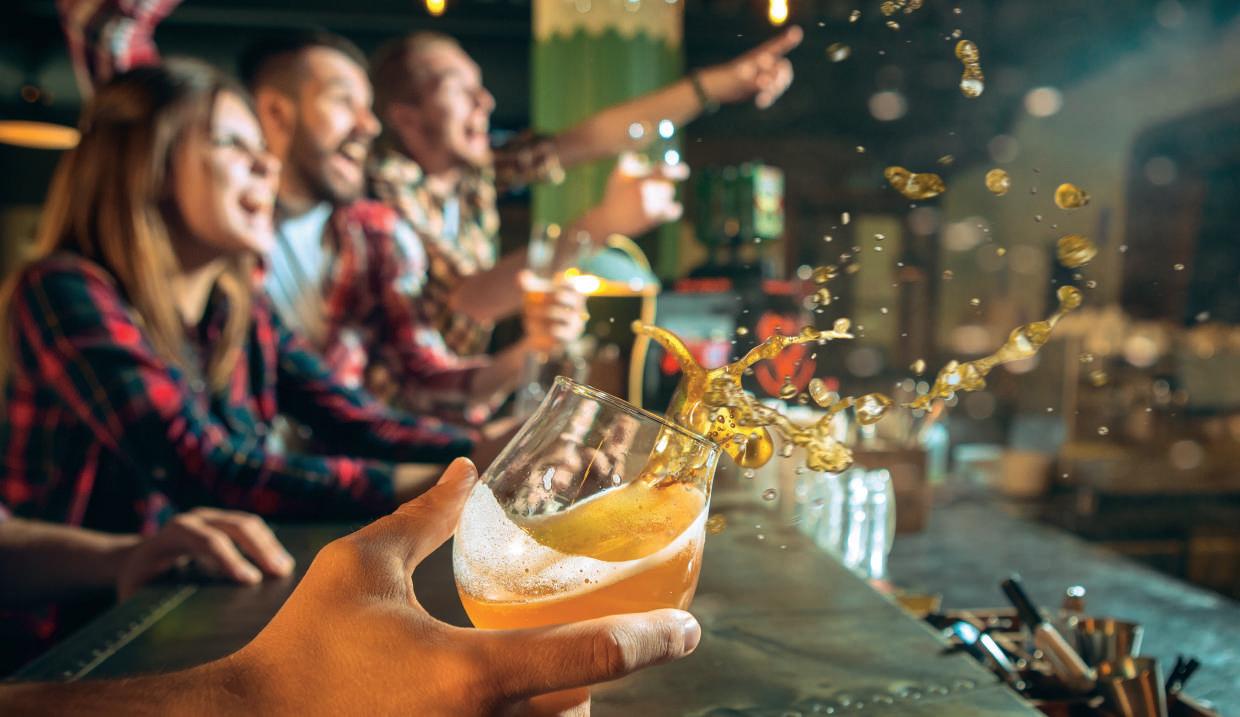

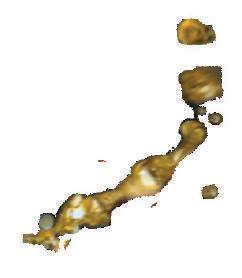
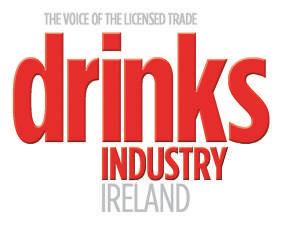



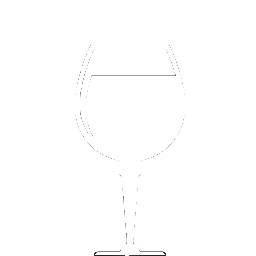
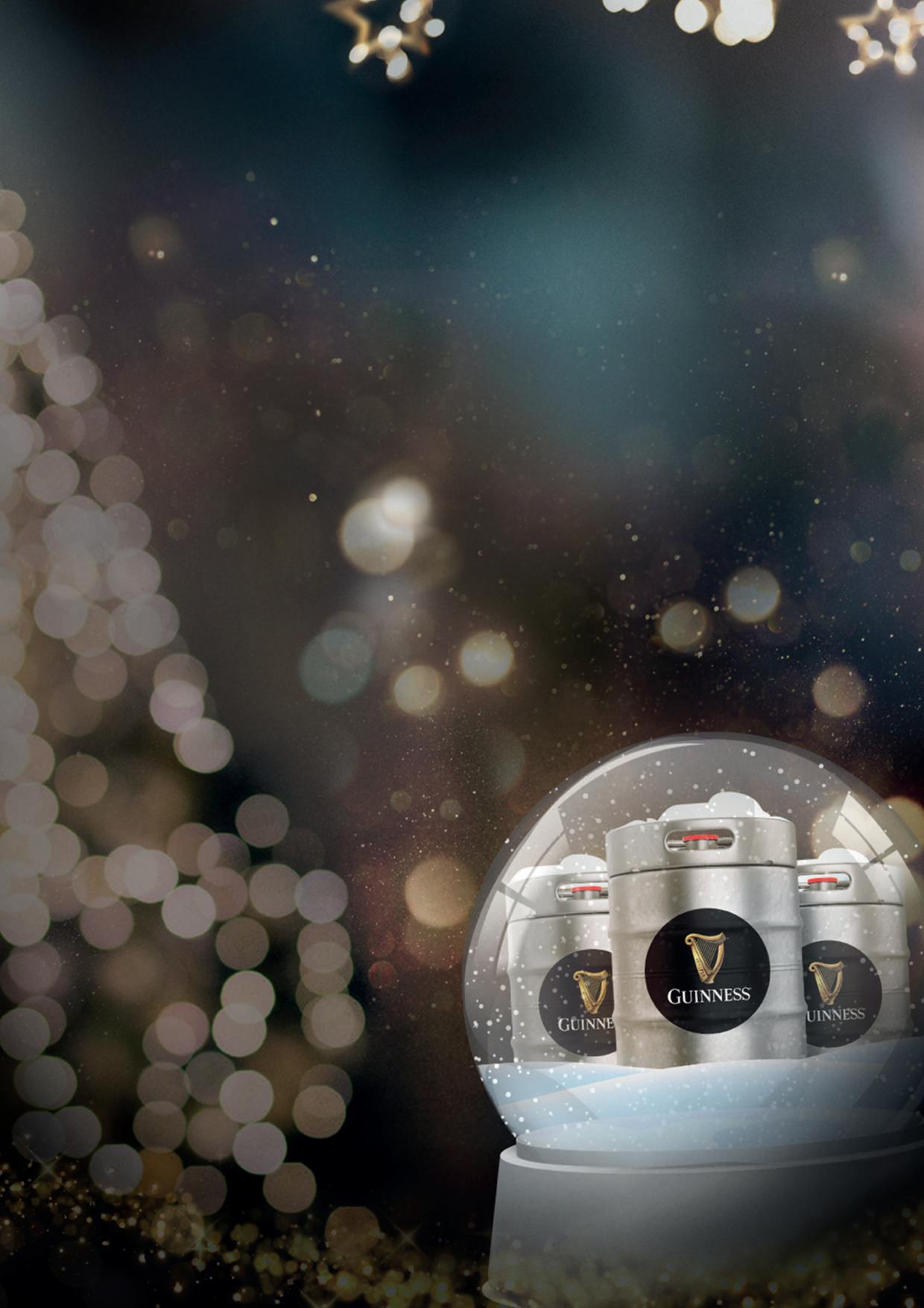
THAT’S OVER 1,000 PINTS OF THE BLACK STUFF!
With the festive season right around the corner, be in with a chance to win 12 kegs of Guinness for your outlet. ‘Tis the season after all...
HOW IT WORKS Any Diageo One ROI or NI customer who places an order between 14th November - 14th December will be in with the chance to win. For full T&Cs visit www.Diageo-One.com SCAN